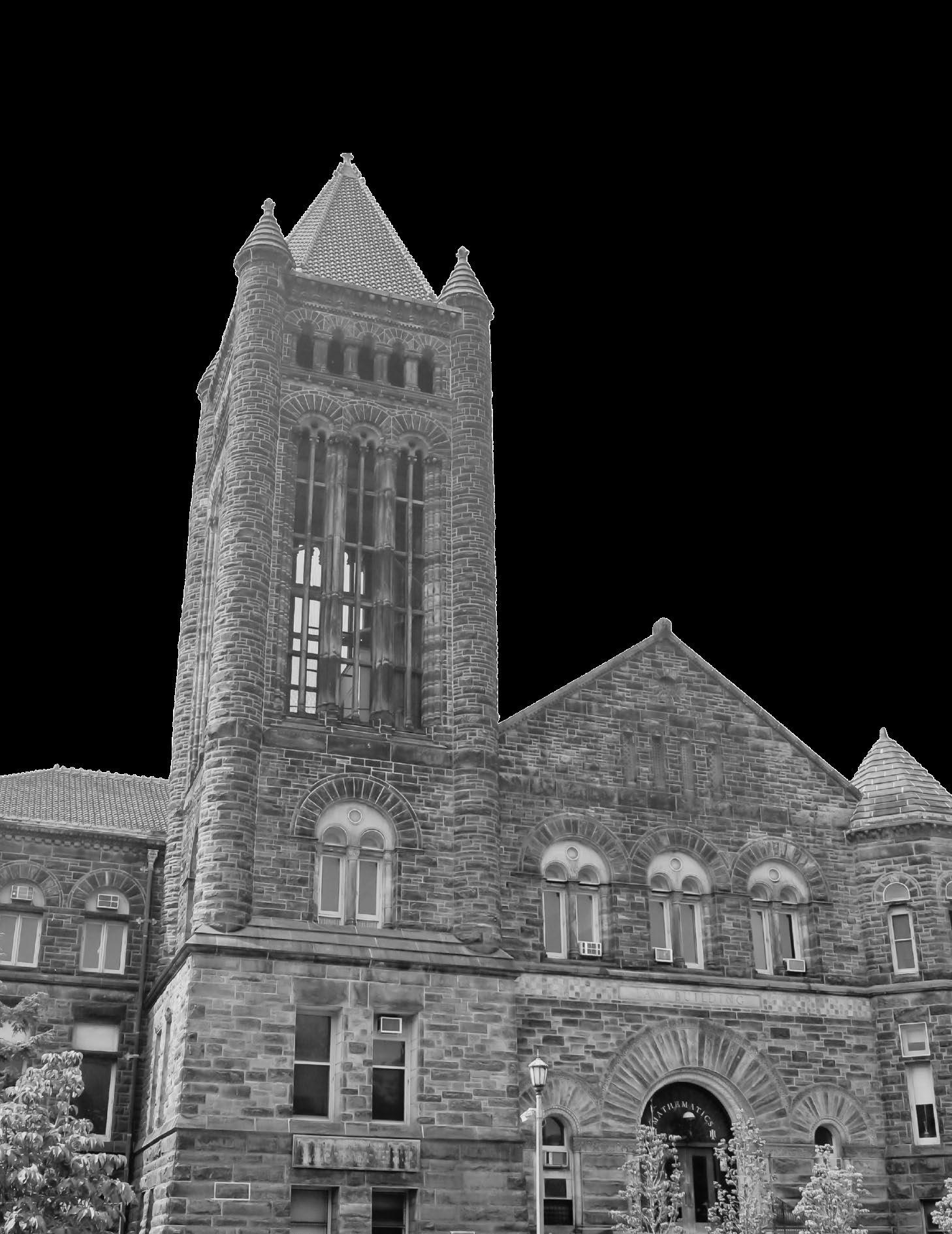

HIGHER ED RISING
Presidents, faculty, and students from 125 institutions making democracy a campus priority

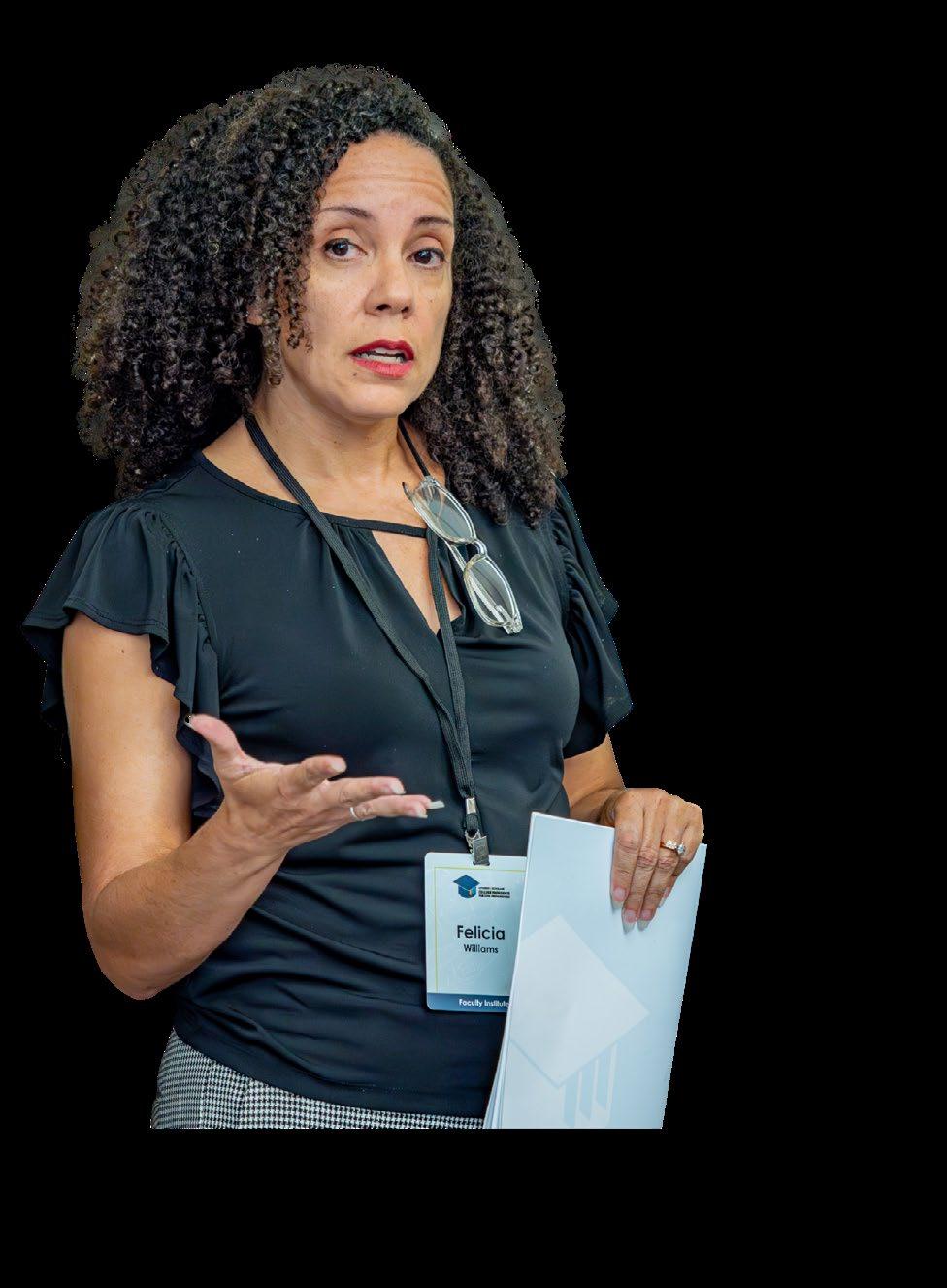
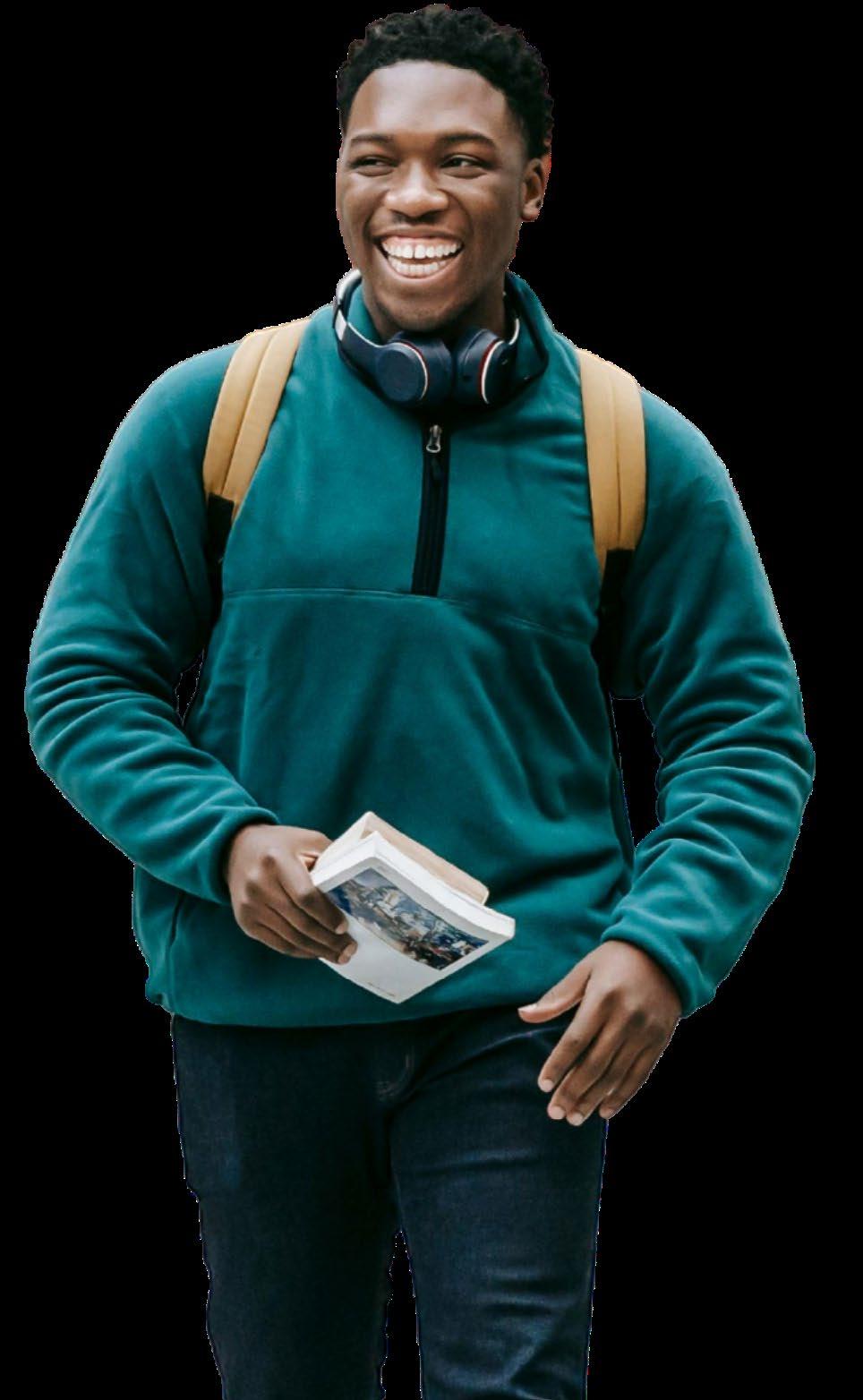
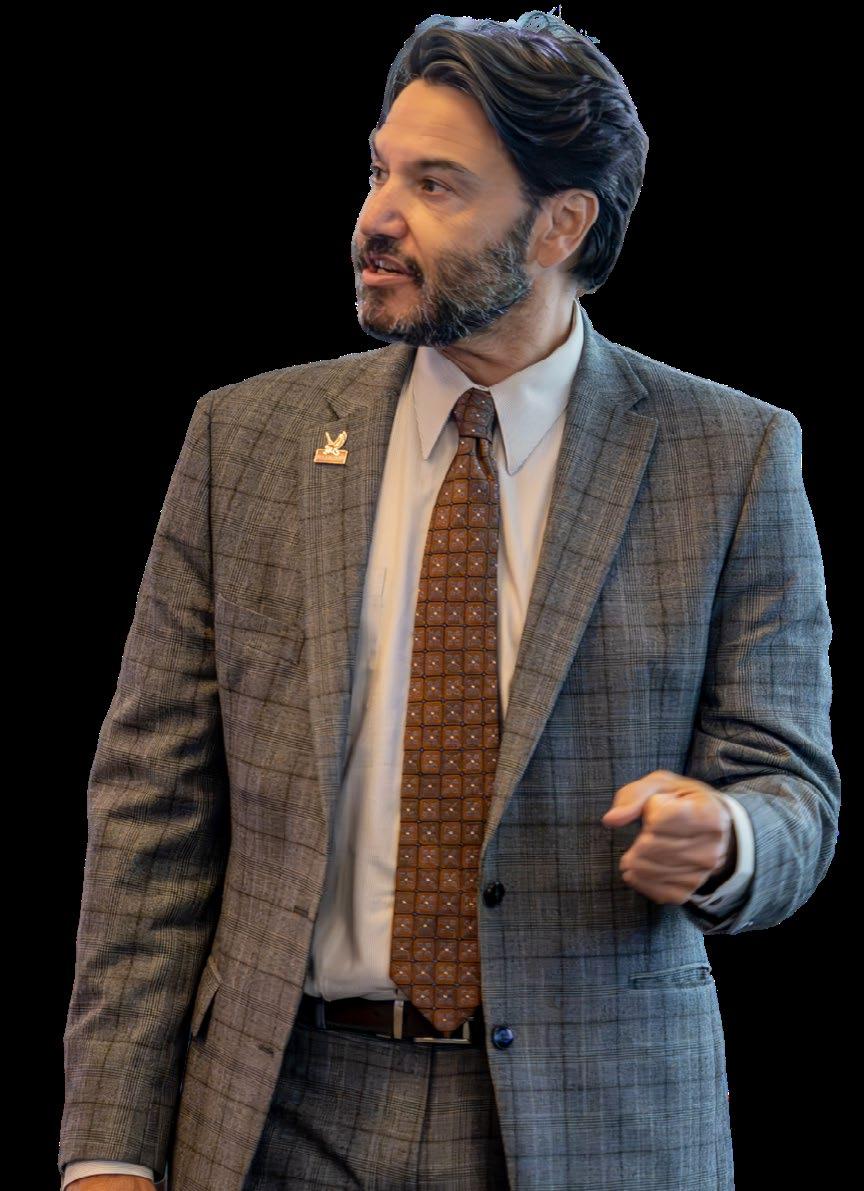
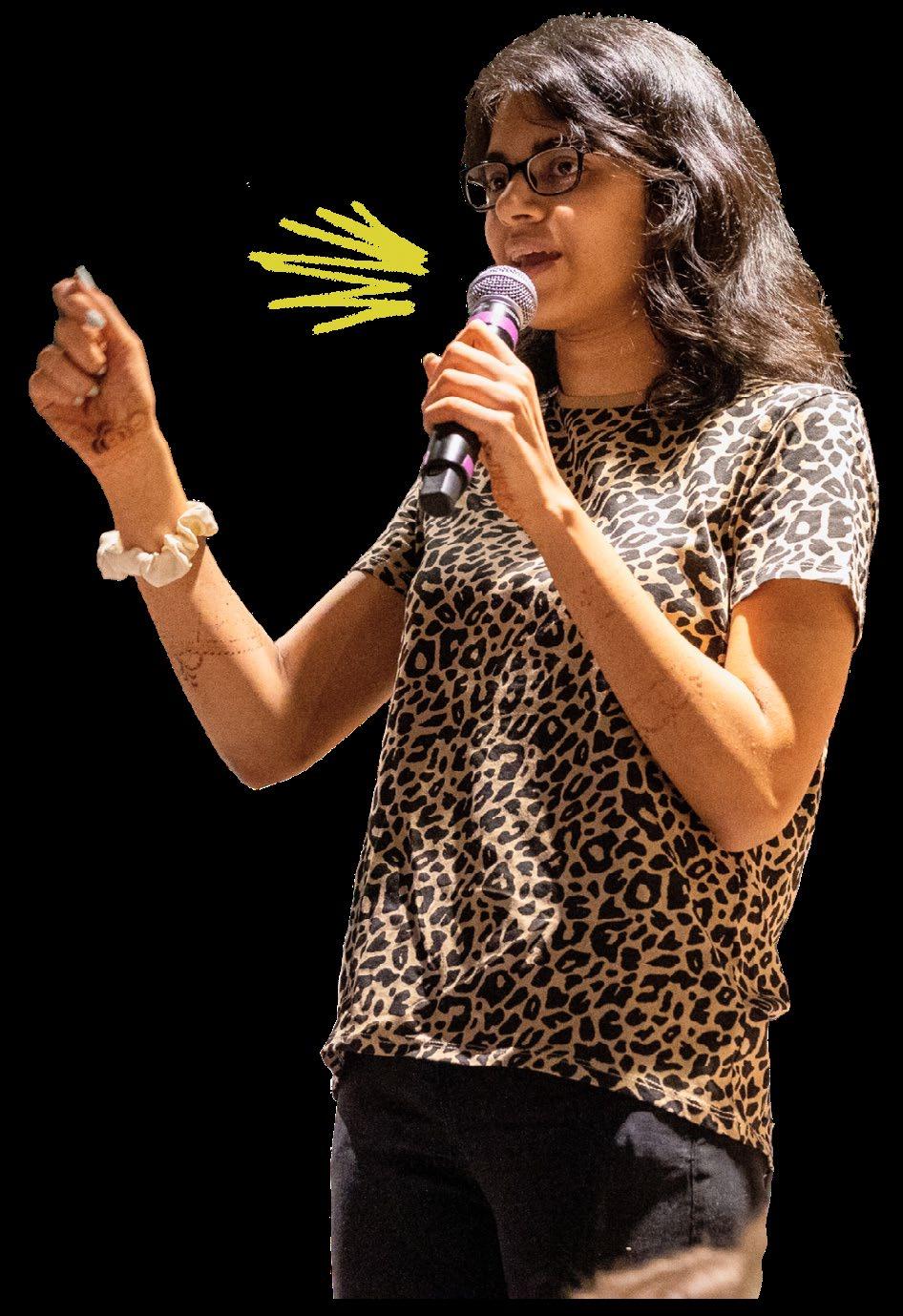
This is a pivotal time for higher education.
Confidence in higher education is being tested like never before. Yet amid the noise, one truth remains clear: higher education has a vital role to play in restoring civic life.
That’s why our coalition—College Presidents for Civic Preparedness—is stepping up.
Campus leaders are recommitting to higher education’s public purpose: preparing graduates to listen, debate, discern, and lead across differences. While some question the direction of higher education, our coalition is showing what civic renewal looks like on the ground, every day.
Presidents, faculty, and staff are transforming campuses into civic development hubs, where students learn to engage across divides, discern fact from fiction, and solve problems collaboratively.
Yes, higher education has its flaws. But it still offers something rare: proximity to people who think differently. Classrooms where disagreement is not avoided but explored. Environments where the habits of democracy are practiced, not just studied.
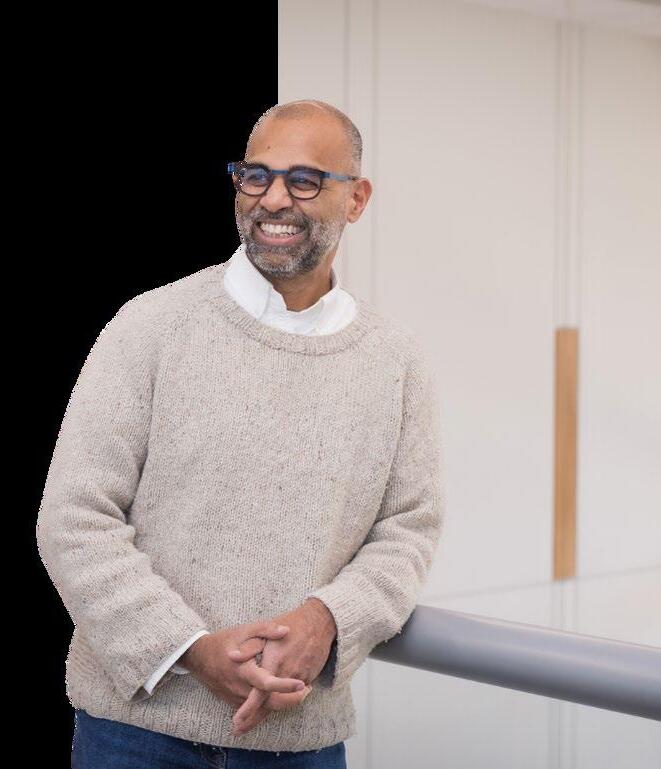
Too often, we treat democracy as a subject to learn, not a muscle to build. That must change—not only for students, but for the institutions that serve them.
Reform is already under way. Campus leaders are preparing students not just for careers, but for citizenship. And students are not waiting for permission. They’re leading.
A national movement is taking shape. This report captures a snapshot of that movement through the voices of real people doing the work—presidents, faculty, students— in their own words. These institutions are putting civic purpose into practice and reminding the country what higher education is capable of at its best.
If you believe preparing students for democracy is as vital as preparing them for careers—join us.
Rajiv Vinnakota, President Institute for Citizens & Scholars
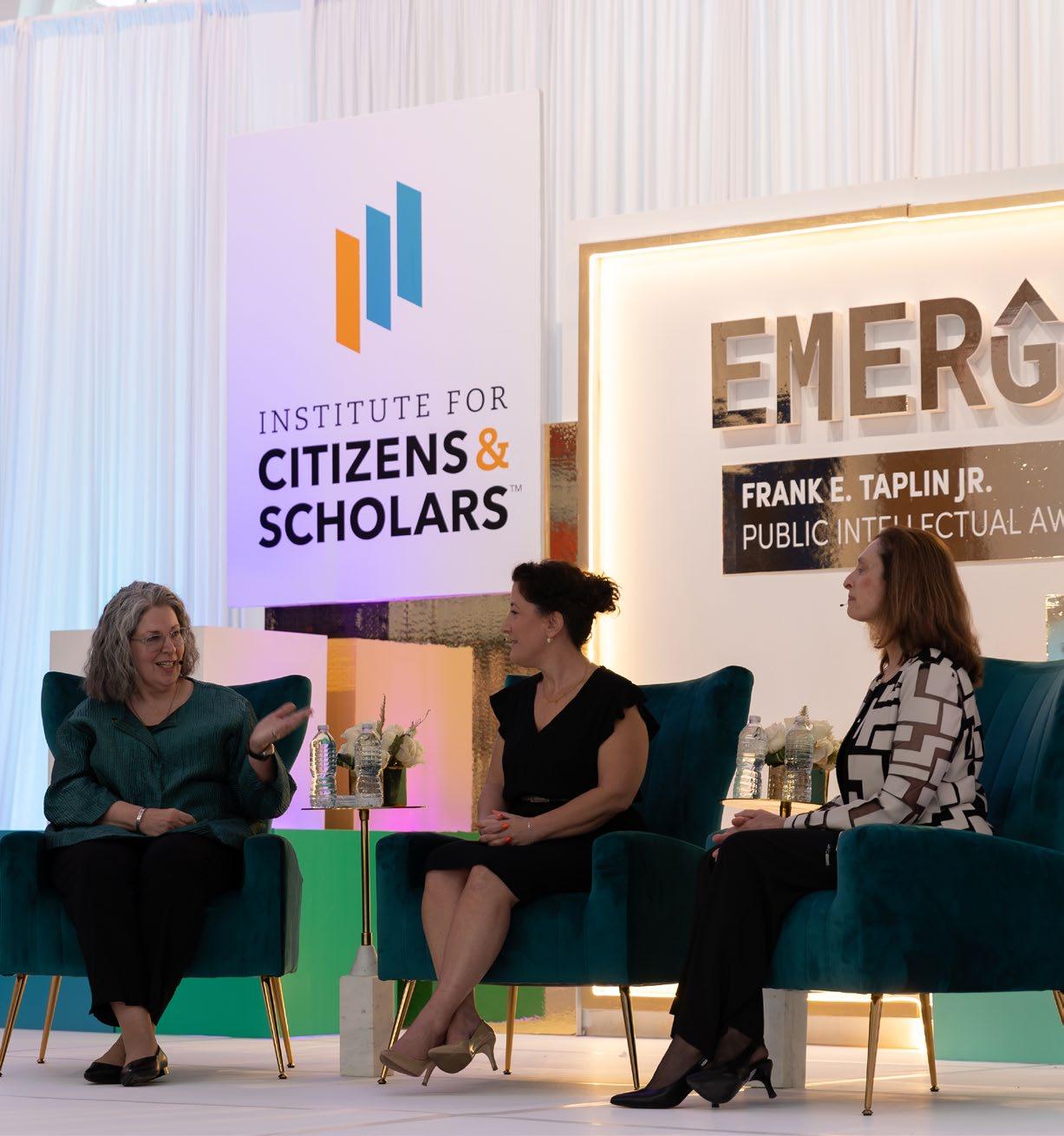
Beverly Sanford (Citizens & Scholars), Suzanne Rivera (Macalester College), Elizabeth Matto (Rutgers University)
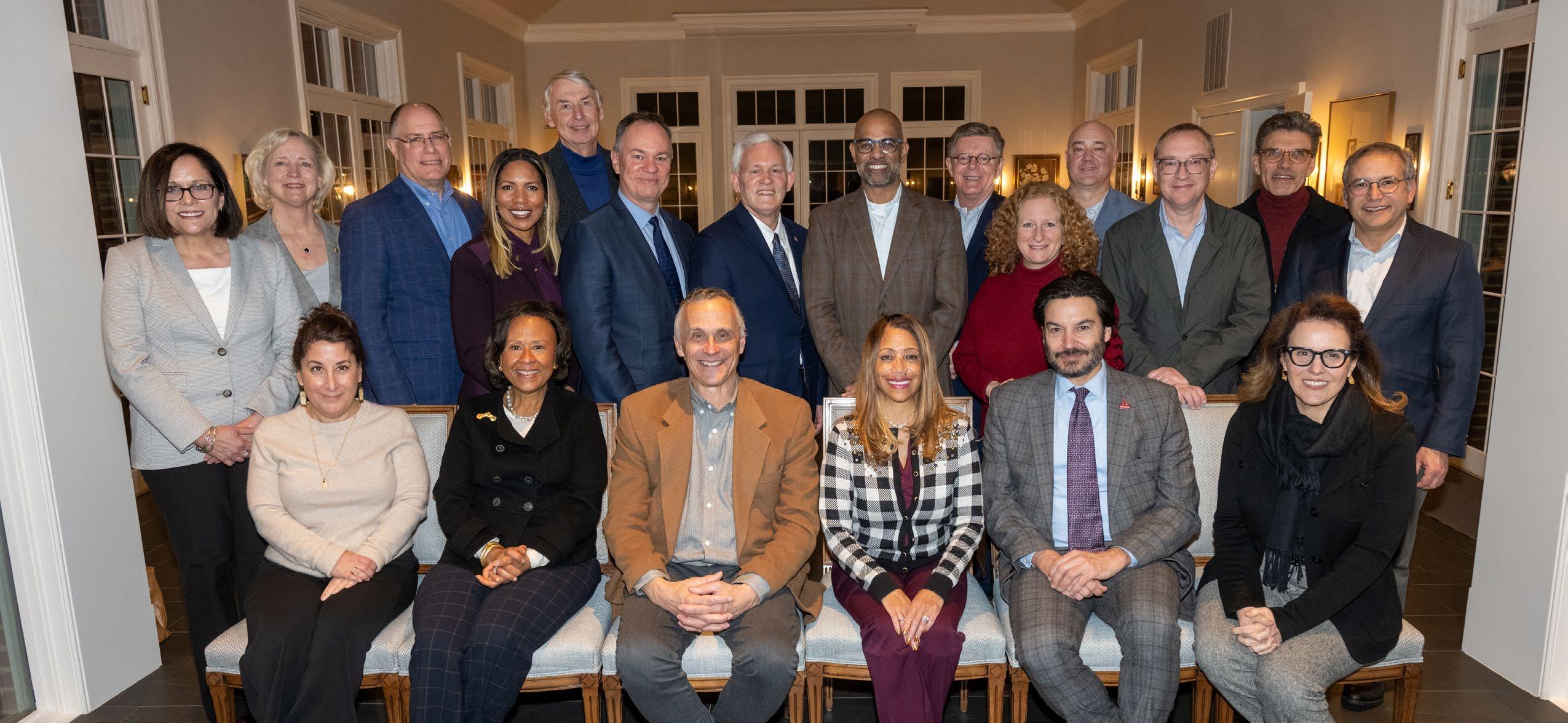
Presidential Leadership in Action
College Presidents for Civic Preparedness is a coalition of 125 presidents reimagining how higher education prepares students to live, lead, and contribute in a divided world.
This isn’t about statements. It’s about strategy and implementation—aligning leadership, programming, and infrastructure around a clear civic mission.
What unites these presidents are three civic commitments and a shared belief: higher education must produce graduates equipped not just for economic participation, but for civic life. They are building the institutional capacity to make that vision real.
“The College Presidents for Civic Preparedness coalition is paving the way for a renewal in higher education—one in which pluralism, collaborative problem-solving, and belonging are at the heart of the college experience. If you are looking for signs of transformation in higher education, look no further than the work already being done by the coalition at 125 institutions across the country. It gives me hope knowing that the next generation of graduates will have the skills and motivation to bridge divides and repair our social fabric.
Jennifer Hoos Rothberg, Executive Director of Einhorn Collaborative
“At a time when our nation feels increasingly fractured, I believe it’s more important than ever to invest in the people and programs working to build common ground. The Institute for Citizens & Scholars is doing just that—preparing young people to lead with integrity, ask tough questions, and stay engaged in our democratic process.
Judy Woodruff, Senior Correspondent for PBS News Hour
“Since Day One of Governor Youngkin’s Administration, we have committed to fostering diversity of thought, civil discourse, and free expression on our college campuses. Nine of Virginia's institutions, both public and private, partner with the Institute for Citizens & Scholars—an organization dedicated to teaching young people civil discourse, how to identify misinformation, and solve problems creatively—leading transformational civic development on campuses and within student communities. Our Administration continues to nurture these enduring partnerships because instilling in our students the capacity for respectful debate and free expression strengthens and shapes our democracy.
Aimee Guidera, Virginia Secretary of Education
BY THE NUMBERS
125institutions



15 77 125presidents Coalition growth from inception to year two
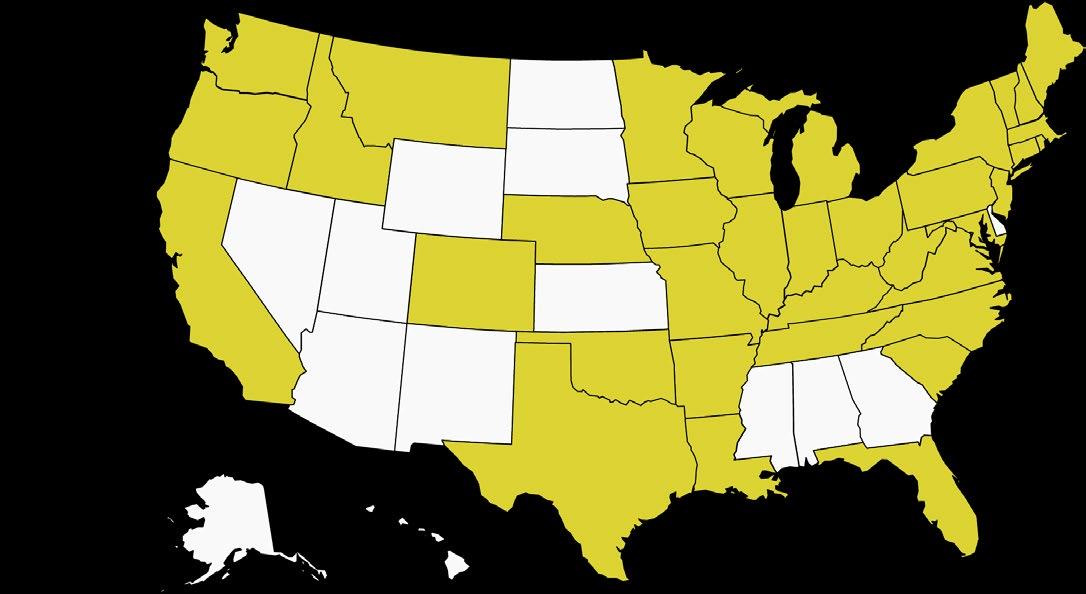
36 states & District of Columbia
27institutions are integrating civic preparedness into the entire campus experience, included shared measures to assess impact. A significant step toward a unified, nationwide effort.
Broad array of institutions

807,154
50media placements including The New York Times, NPR, The New Yorker, Inside Higher Ed, Boston Globe, and Forbes

71presidents participated in From Commencement to Community campaign
91presidents engaged in virtual and in-person events

81faculty participated in Faculty Institute
Campuses Can Be Vibrant Hubs of Civil Discourse
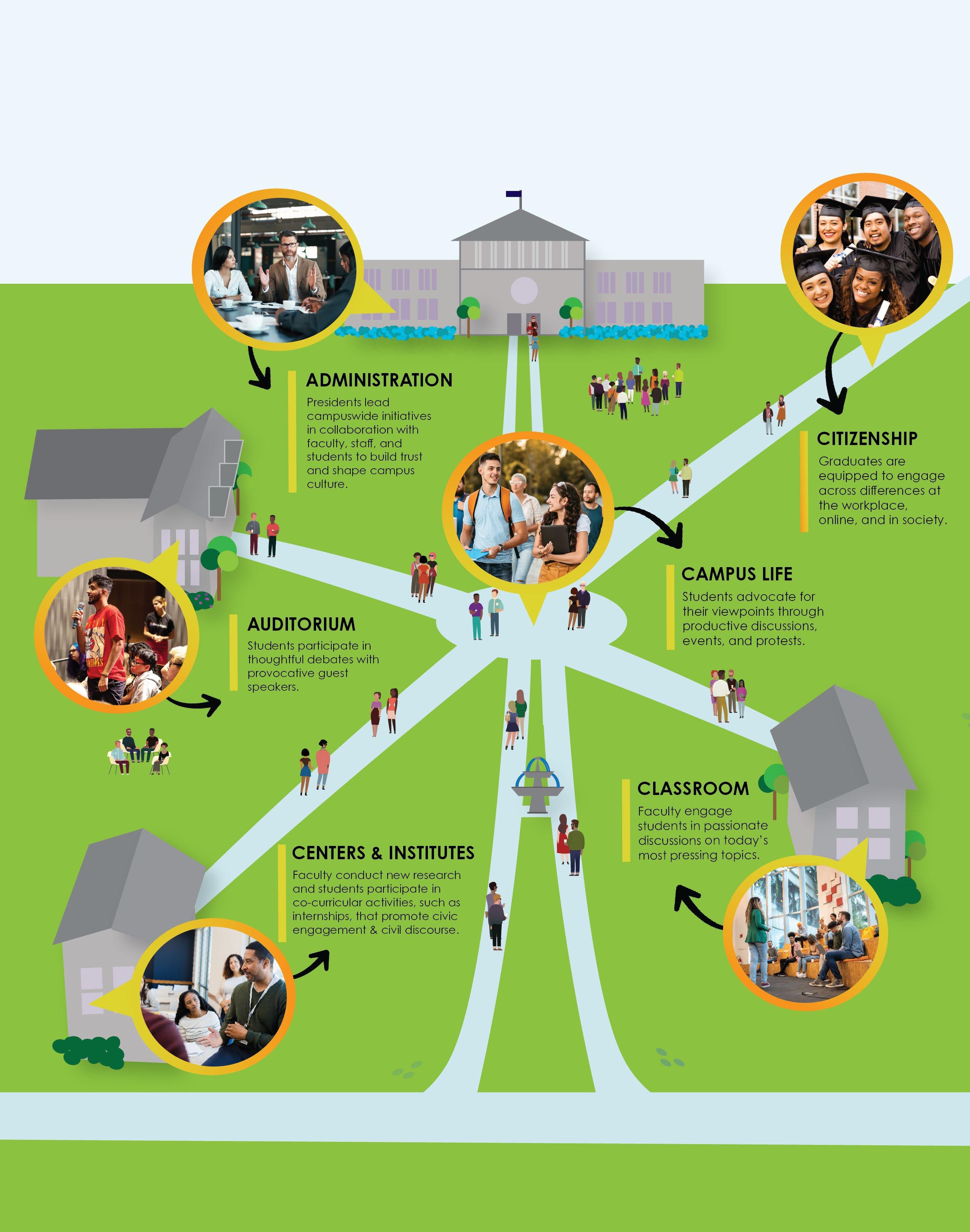
MEASUREMENT
Presidents participate in robust assessment of the impact of their work on students and campus climate, constantly looking to improve upon their approach and practices.
Civic Preparedness Is Not a Course—It’s a Culture
This moment demands more than one-off programs. We are embarking on institutional transformation that aims to reach every student. The result? Our campuses don’t just operate differently—they look different: more engaged, more inclusive, more connected to civic development.
Academic Integration
Embedding civic learning through general education requirements, faculty development, and coursework across disciplines.
Campus Culture
Fostering environments that support open dialogue, mutual respect, and inclusive participation through co-curricular programs and campus events.
Strategic Leadership
Centering civic purpose in institutional planning, communications, and senior leadership priorities.
What Makes This Work
Different
This is an impact-driven coalition. What sets us apart:
Campuswide Reach
Institutions are building not just isolated programs, but integrated civic ecosystems.
Visible Leadership
College presidents are publicly championing and guiding the work.
Deep Collaboration
Presidents, faculty, and staff engage directly with one another—sharing ideas, strategies, and challenges in a trusted peer network that fosters collective problem-solving and leadership development.
Commitment to Evaluation
Campus leaders share insights in real time across the coalition, with a focus on measuring outcomes and effectiveness.
Custom Fit, Collective Impact
Locally designed strategies align with a shared national vision.
Diverse Representation
College presidents are uniting across ideologies, institutions, and geographies from public to private, coast to coast.
Confidential Forum for Presidents
We provide leaders with a private space to discuss challenges, share insights, and collaborate on the pressing issues their campuses face. Each forum draws guest speakers, lively discussion, and key recommendations.

Explore the Leadership Behind the Movement
Across the country, presidents are advancing this work with boldness and care. Explore their campuses, hear their vision, and see how leadership becomes action.
Meet the Presidents
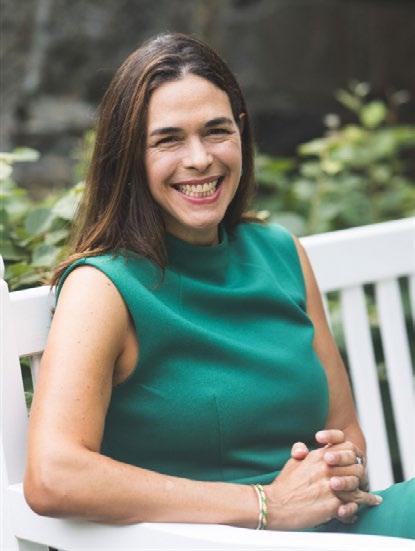
It’s imperative for leaders in higher education to do all we can to promote dialogue across differences, and that’s why I’m so excited to be part of this coalition.
Sian
Leah Beilock, Dartmouth
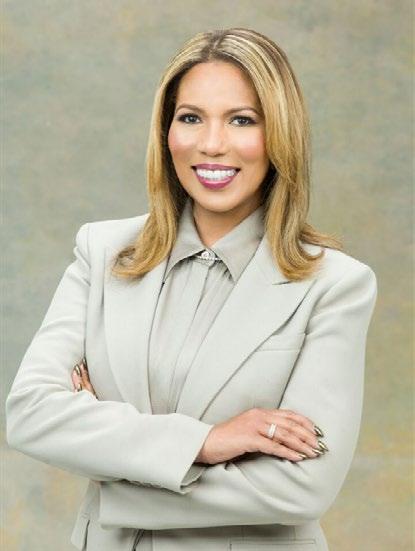
Education helps to solidify ideas and notions. It’s to foster creativity and critical thinking and engagement and collaboration. And I think if we let go of that… we have cost ourselves something. We have ceded the moral high ground on what education was designed to do.
Roslyn
Clark Artis, Benedict College
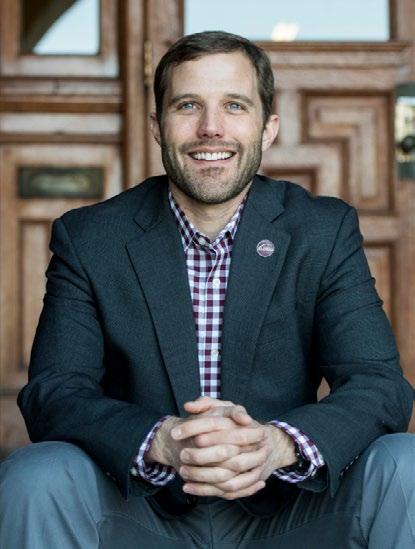
Our vision is to be a Flagship for the Future, fostering inclusive prosperity and democracy while creating new knowledge and ways of learning. For UM, “prosperity” is characterized not just by an individual’s ability to engage in meaningful work. Prosperity—or building a ‘good life’—is also marked by healthy relationships, lifelong curiosity and learning, and a deep sense of civic responsibility to one’s community. This responsibility includes the virtues and habits of character required to engage productively as a member (and for many, a leader) of their community.
Seth
Bodnar, University of Montana
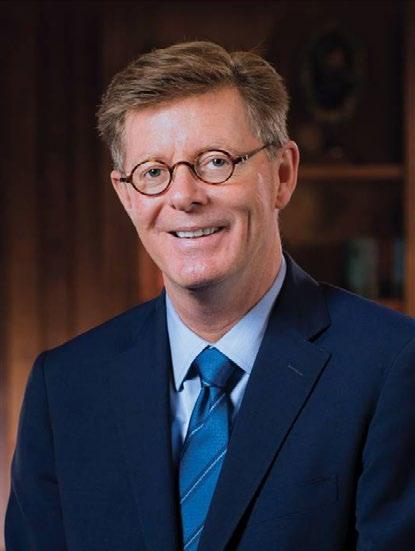
To realize the full potential of Duke’s people, we must cultivate and maintain a campus community where every person—especially those whose viewpoints or backgrounds may be in the minority—feels a strong sense of belonging and support for their work.
Vincent Price, Duke University
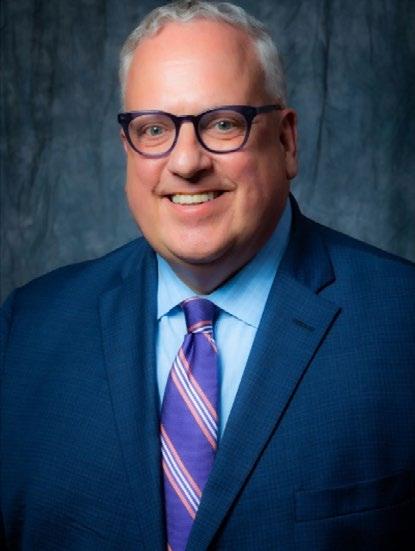
Colleges and universities remain vital spaces where free expression thrives, where hard questions are asked, and where democracy is not only studied but strengthened. These aren’t just academic values, they’re democratic values— American values.
Chris Reber, Hudson County Community College
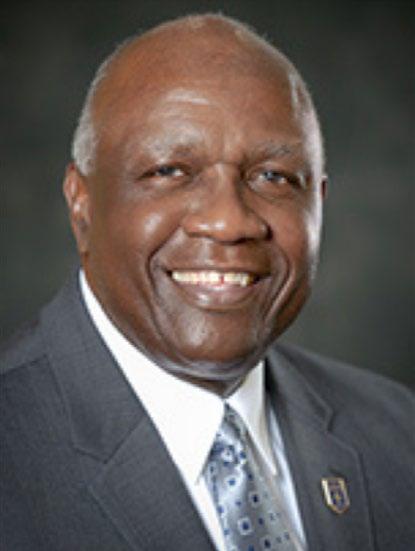
Higher education is essential to a healthy democracy. It’s where we prepare global citizens—not just for careers, but for life. Higher education has fueled American progress— driving innovation, leadership, and civic life. Beyond job training, colleges prepare people to strengthen our democracy and help solve the challenges facing our nation.
Jackie Edmondson, University of Southern Maine
Colleges and universities have a special responsibility to create environments that promote these values and help to inculcate in students an enthusiastic appreciation for the value of free expression, enlightening debate, and civil discourse— especially during these difficult times of distrust, division, and apparent disdain for civil discourse and debate.
James Williams, Mount St. Joseph University
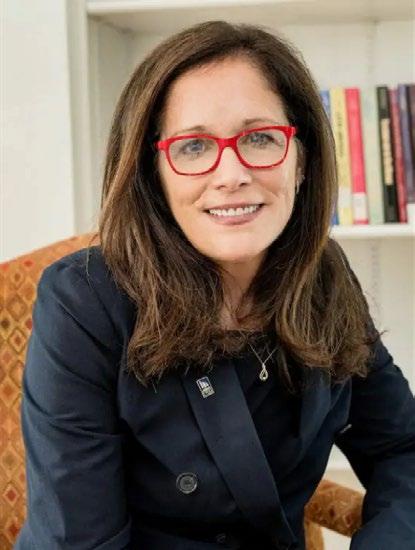
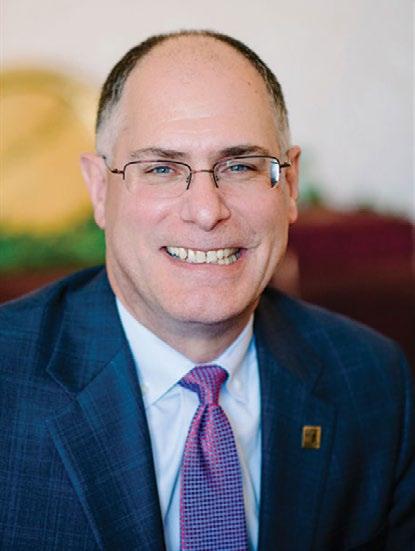
I proudly represent University of Dayton in a group called College Presidents for Civic Preparedness, a coalition of more than 120 campus leaders who are working to empower our graduates to engage thoughtfully with the world by asking the hard questions and engaging in civil discourse with others even—and especially— when there are differences.
Eric Spina, University of Dayton
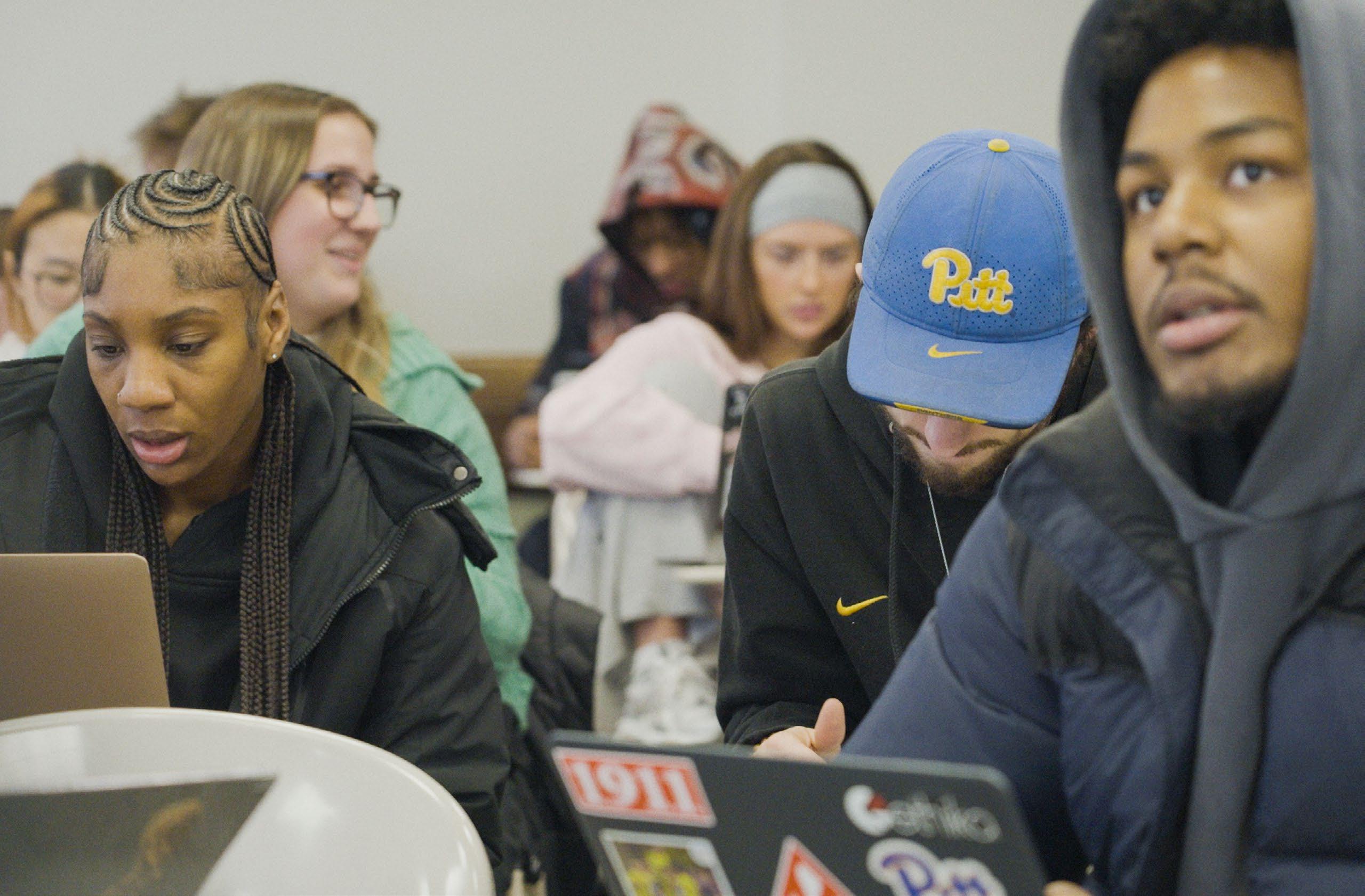
Student Voices: A Generation Stepping Up
Our students are not retreating from conflict. They are stepping into it with empathy, curiosity, and courage. From residence halls to debate stages, dining tables to campuswide events, over 800,000 students in our coalition schools are putting civic skills into daily practice. They’re modeling how to build bridges and have productive conversations about the tough issues facing our communities and country.
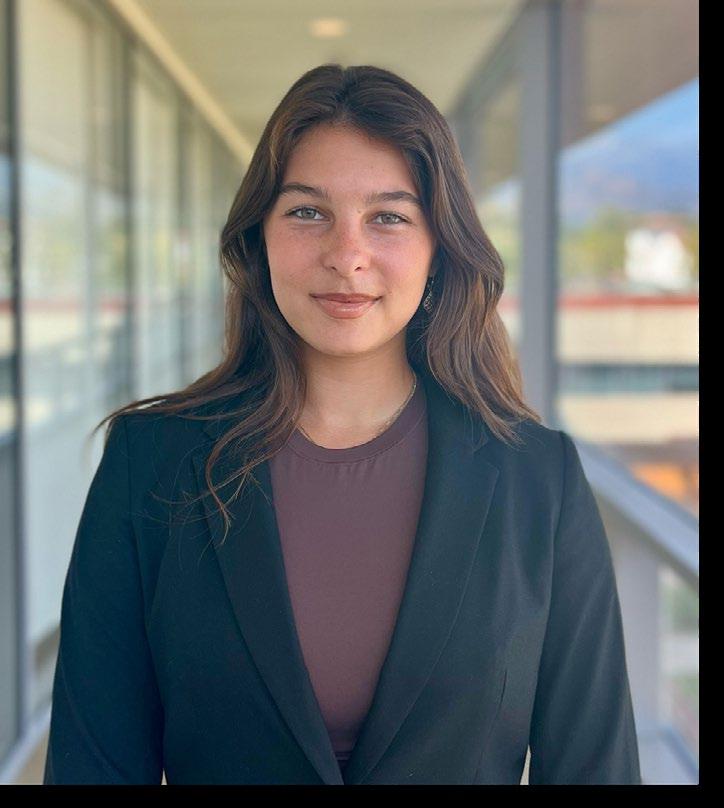
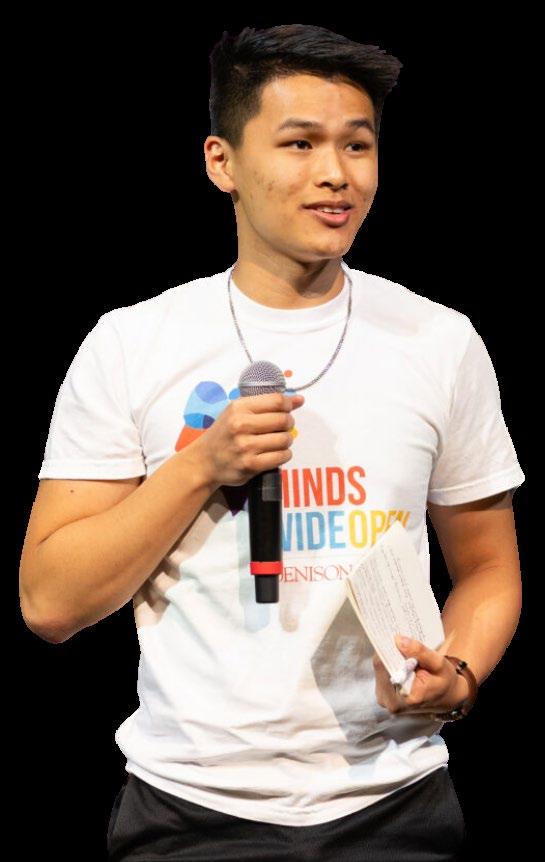
I first became interested in fostering dialogue after participating in Hands of Peace, a three-week-long program for engaging in discussions concerning the Israel-Palestinian conflict. I’m excited to work with the Open Academy to foster a culture of understanding and mutual respect regarding controversial issues.
Annie Bernstein ’27 (Claremont McKenna College) attended a campuswide initiative—Open Academy—which develops values of critical thinking, mutual respect, and leadership for every student.
Read More
During one of our dinners we were able to engage in an exciting debate about freedom of speech and its limitations. People had differing views, but the act of sharing food helped make it a safe space for open dialogue. Food was a tool for progress and a referee of the debate.
Joseph Pool ’26 (Rollins College) created Breaking Bread, a student club that uses shared meals to foster conversations across difference.
Read More
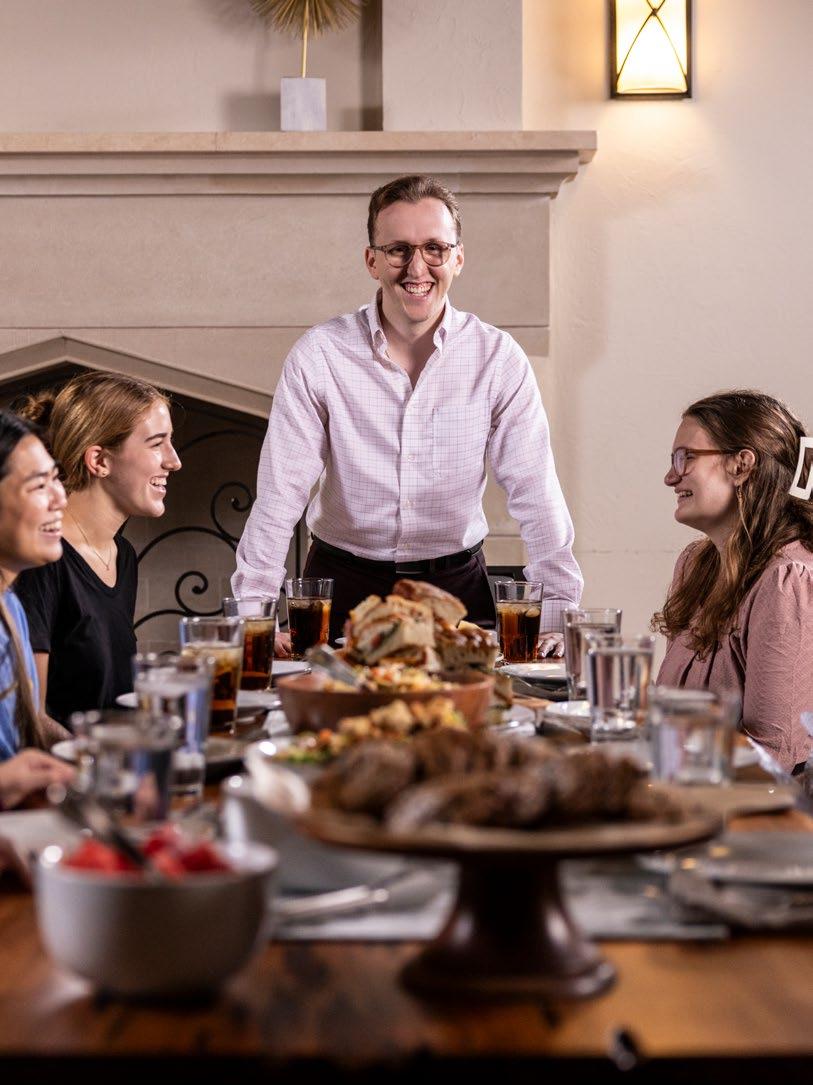
We make it very clear that when people come in, there are some political perspectives that you must bring with you—that everyone is equal in dignity, and that everyone should be treated with respect.
Lukas Luby-Prikot ’26 (Amherst College) is the president of Amherst Political Union and is committed to students finding common ground amid conflicting viewpoints
More
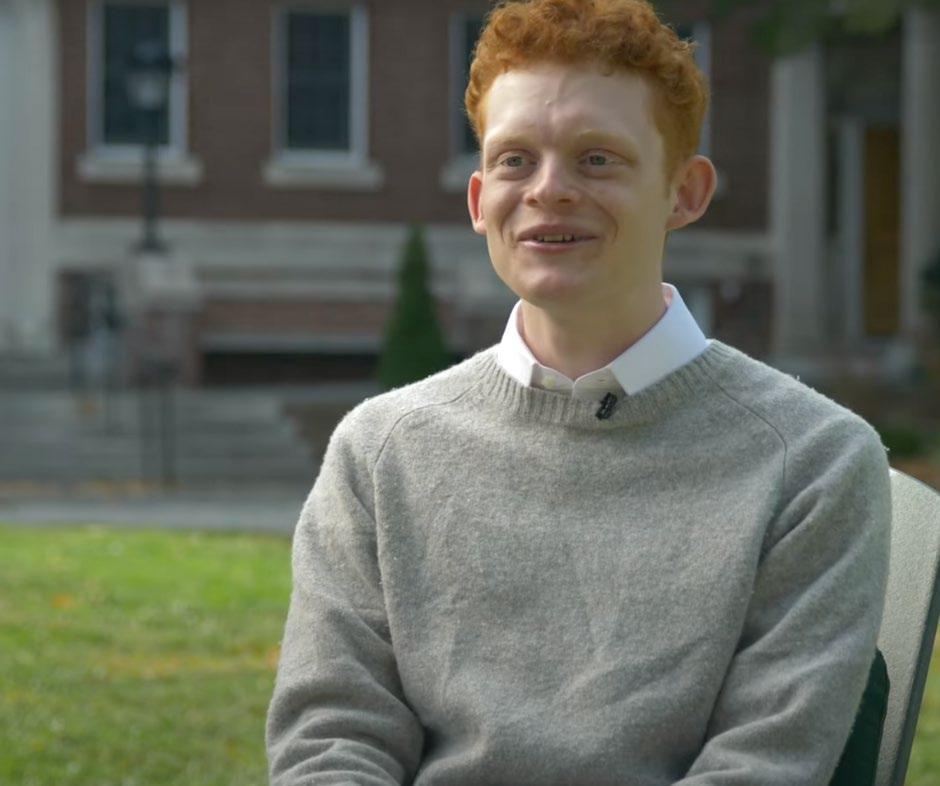
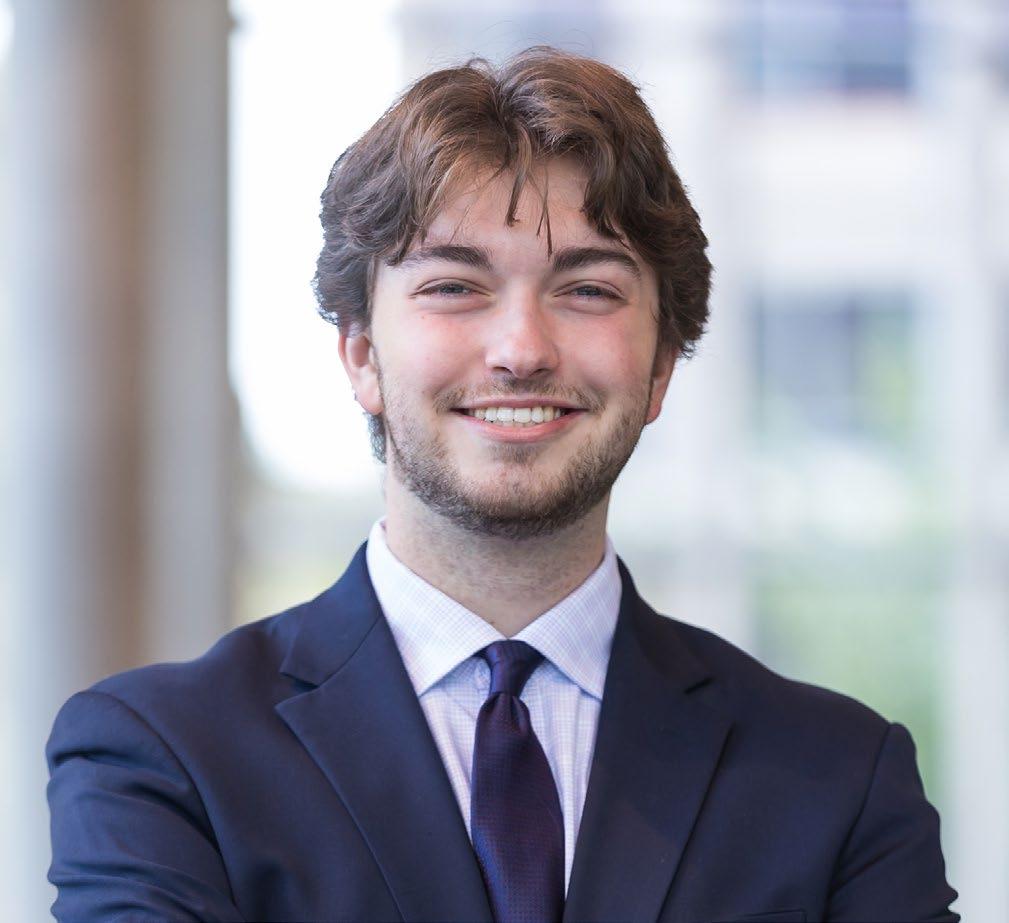
I was watching these two people who I thought would just be at each other’s throats, but I did all this work of intention-setting with them, and got them to get to know each other a little better, and all of a sudden…they’re agreeing with each other on things, and they’re listening with intention.
Jack Siegel ’25 (University of Virginia) launched a student-led civil discourse initiative after a tragic campus shooting.
Read More
The training really enforced the importance of active listening, asking clarifying questions, and engaging in good faith discussion, rather than debate.
Timothy Page ’25 (Ohio Wesleyan University) participated in a campuswide initiative where every student, faculty, and staff member had access to civil discourse training.
Read More
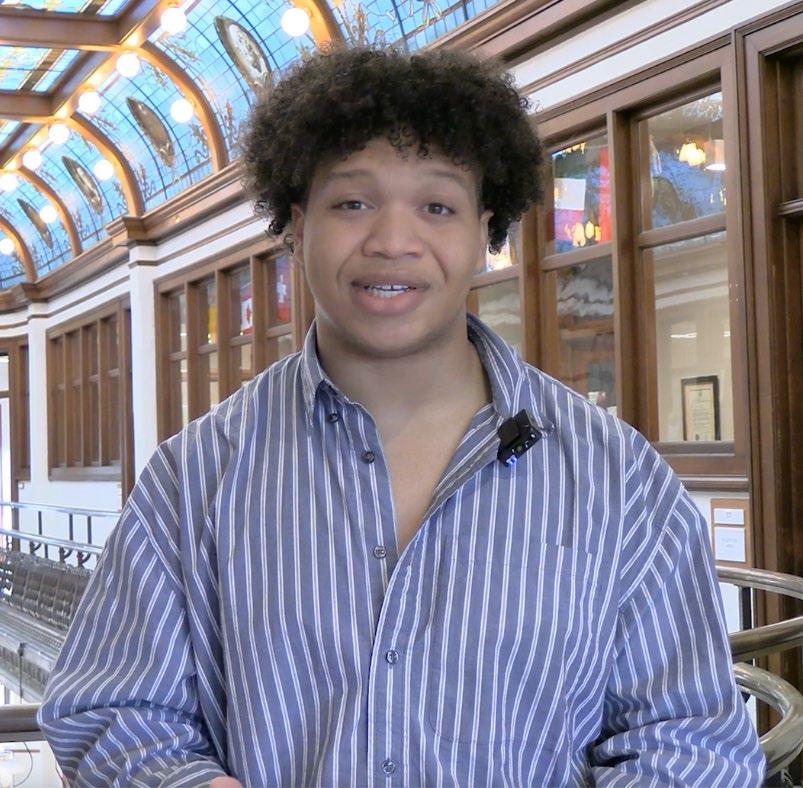
Read
Faculty: Democracy Starts in the Classroom
This year, 81 faculty from diverse disciplines across our network joined the Faculty Institute—an 18-month journey to embed civil discourse and civic development into their teaching. Working within a growing community of purpose—which doubled in size this year—they embraced challenging topics, facilitated brave conversations, and modeled intellectual humility. More than encouraging students to speak up, listen, and engage, these faculty members have become champions of broader change at their institutions.
These skills are like the ground rules exercise I use in class as guidance for the semester. It’s not quite an insurance policy, but more like an inoculation, helping the class manage heated conversations and handle difficult moments.
Elizabeth Matto (Rutgers University) implements the tools and practices she learned at Faculty Institute into her coursework.
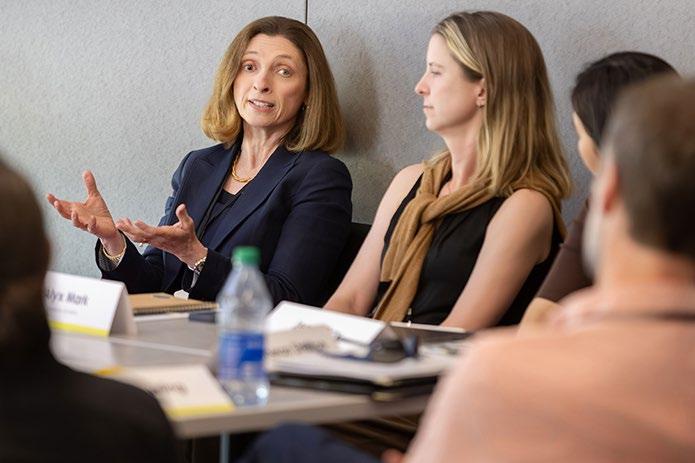
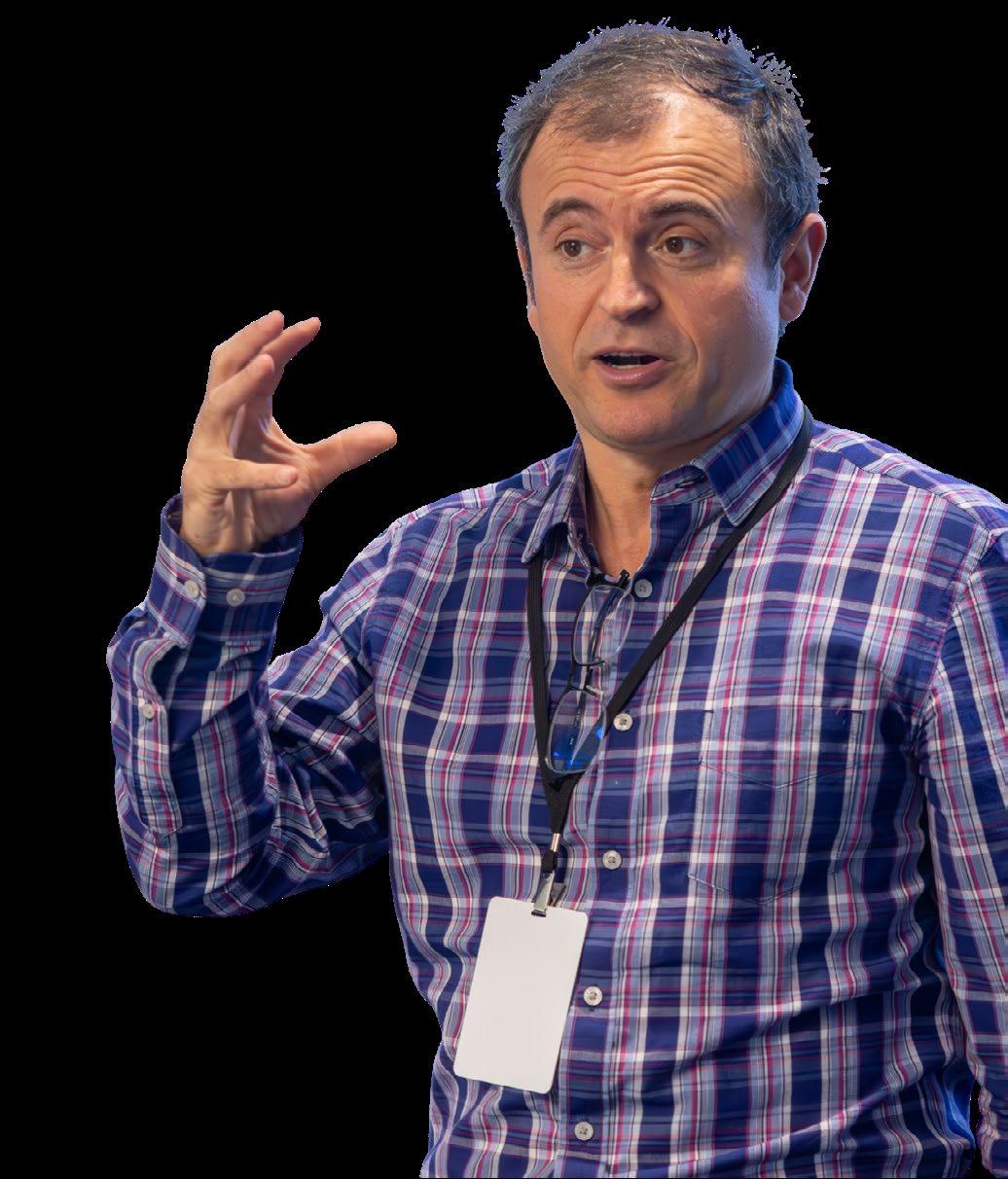
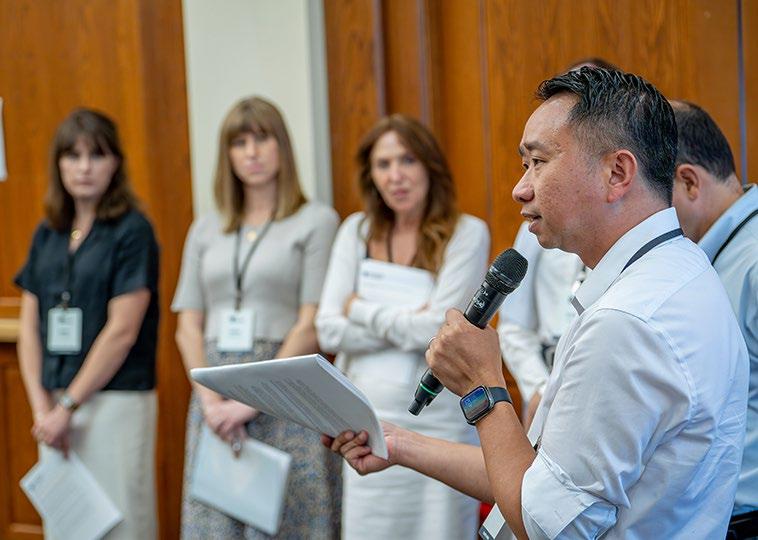
They came up with some really fascinating ideas. Like, my superhero would be one with like really big ears because it’s really important to listen to other people.
Kevin Tan (University of Illinois UrbanaChampaign)
developed a creative superhero exercise to help his social work students think about how to support their younger clients to have difficult conversations.
A small group conversation allows the students to have more authentic, real dialogue across difference.
Sherry Kao (Georgetown University) believes giving students autonomy not only makes them more comfortable sharing their thoughts but also fosters deeper connections.
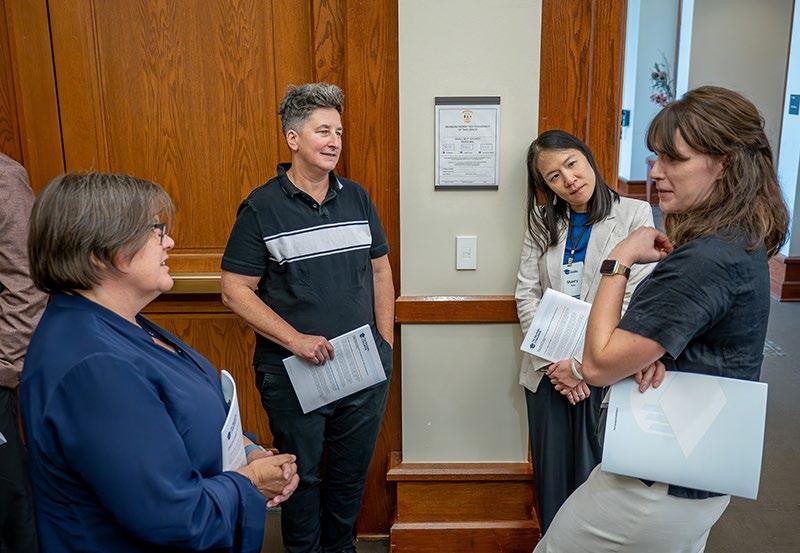
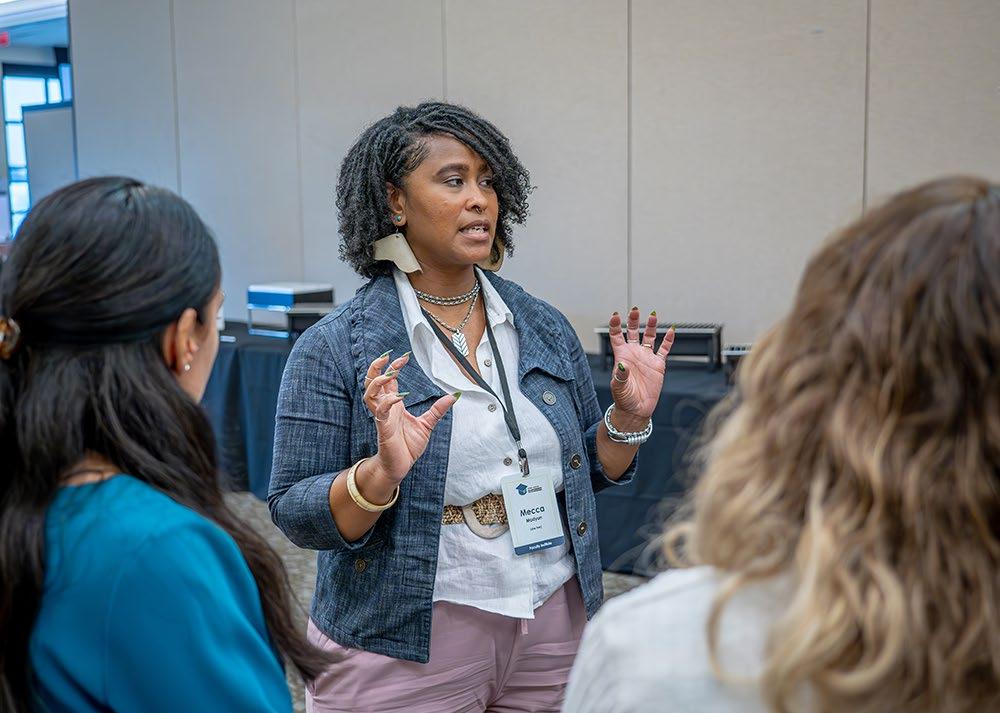
At the core of this idea of civil discourse is how are we able to communicate our values in a way that we are coming together to share ideas primarily, and not with the goal of changing anyone’s mind, per se, but to be able to hear all of the possibilities that exist.
Mecca Madyun (Drew University) teaches civil discourse not to change minds, but to strengthen mutual understanding.
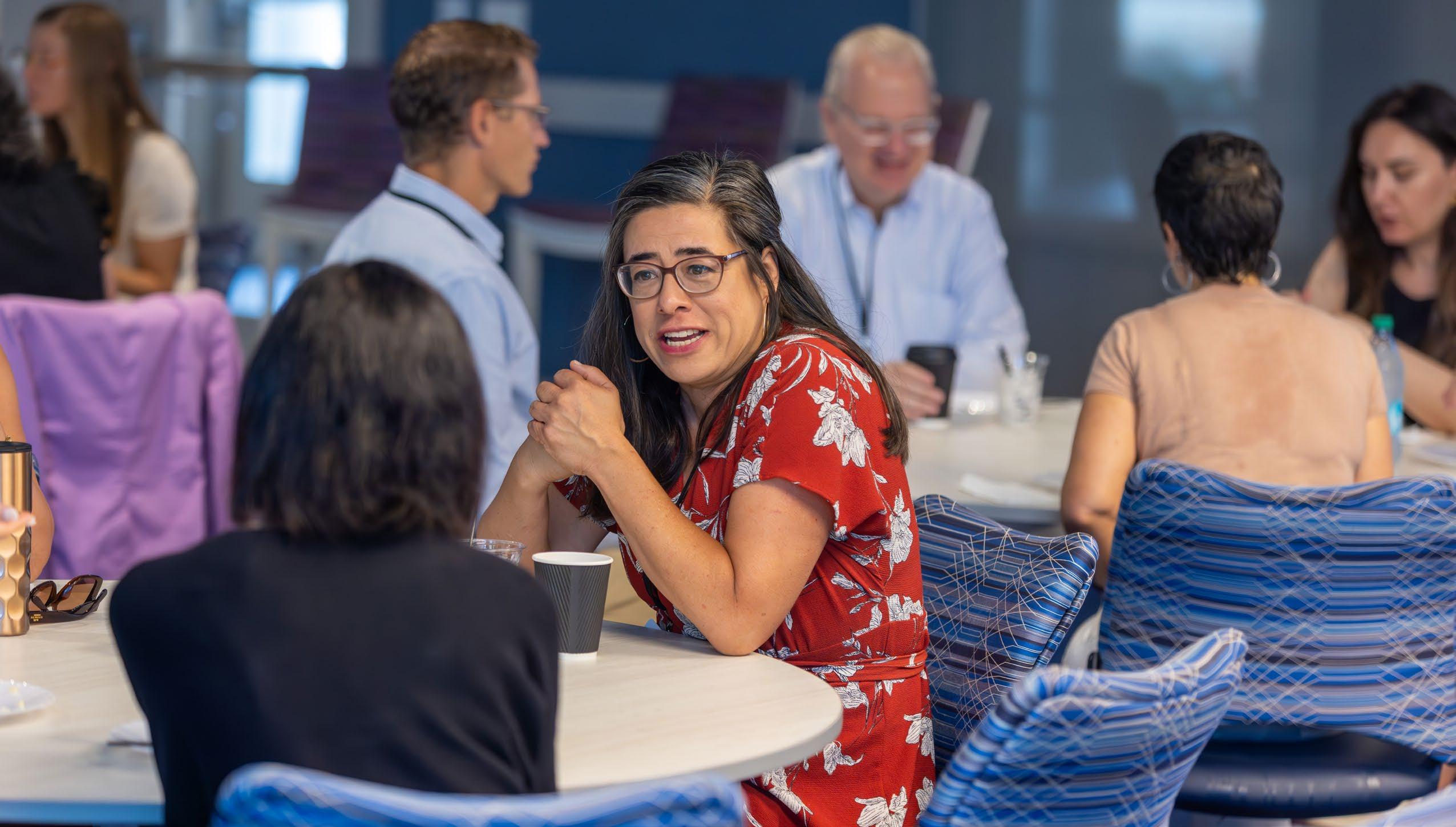
Read More
Read More
Campuswide Impact: Systemic Change, Student by Student
Changing campus culture requires more than one-off events with students who opt in. Our campuswide impact strategy supports institutions in embedding civic preparedness into the full student experience.
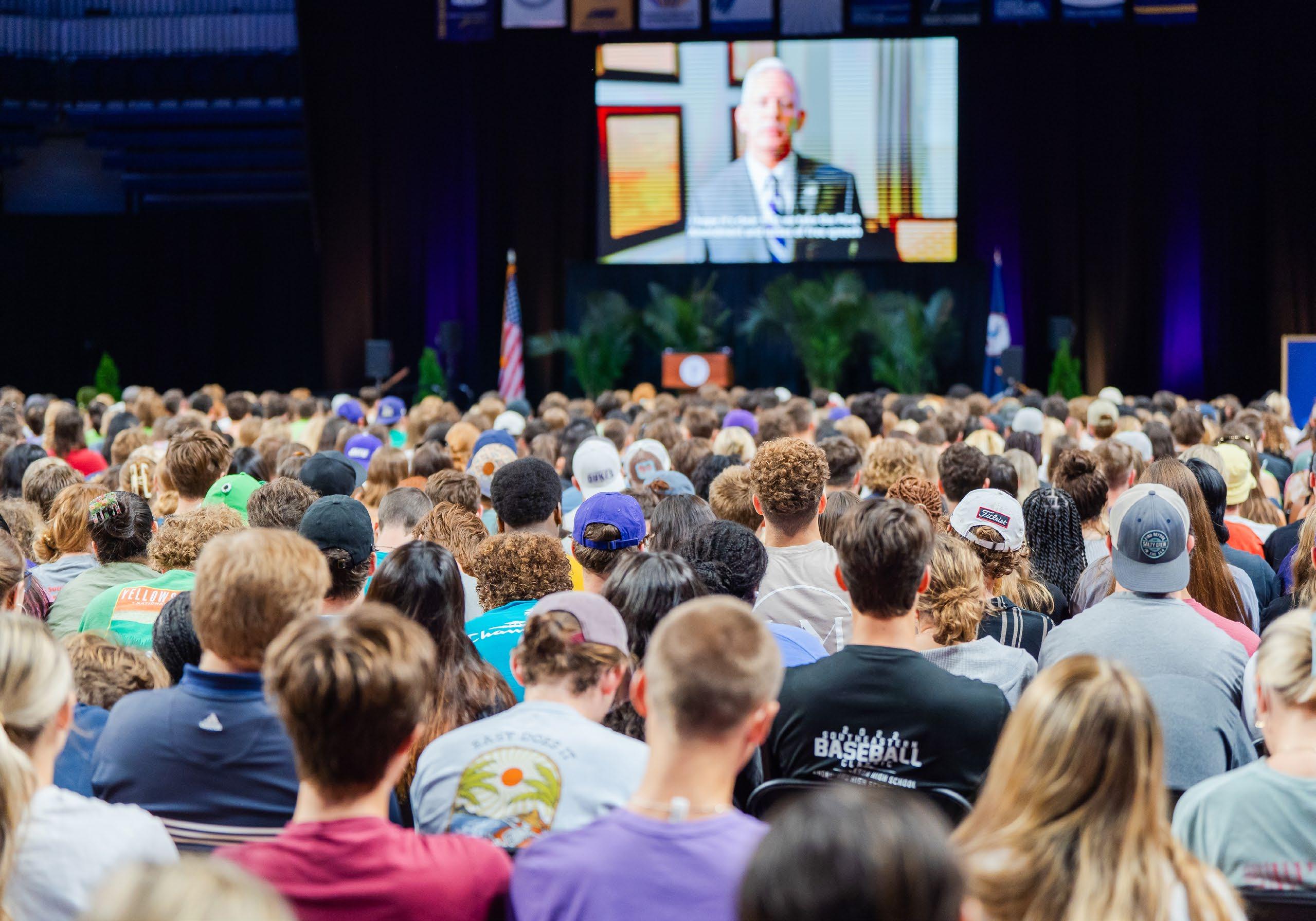
This year, 27 partner institutions worked with us to build sustainable, campuswide infrastructure, including:
Inside the classroom – such as general education requirements and first-year seminars
Outside the classroom – from student orientation to debate dinners and speaker series
Across campus culture – including theme years, president-led initiatives, and other signature efforts
We believe that when civil discourse becomes a campus priority, it becomes a lifelong skill.

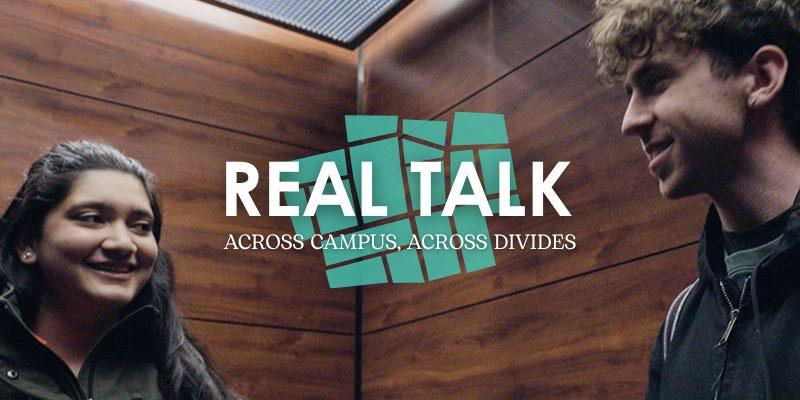
Real Talk: Across Campus, Across Divides, spotlights the University of Pittsburgh’s commitment to building the motivation, skills, and social permission for dialogue across difference.
Presidents Unite to Send Students From Campus to Community
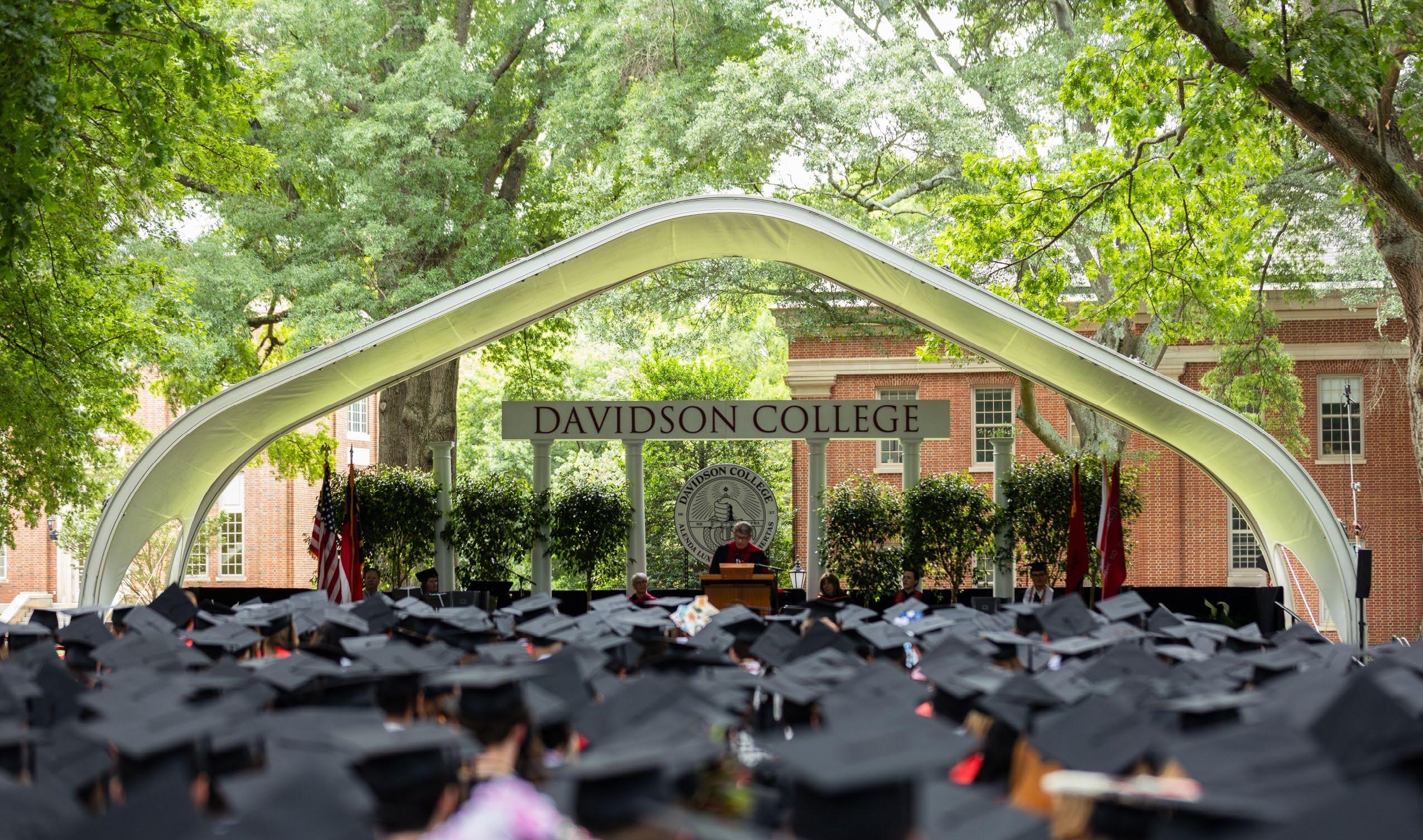
Presidents across our coalition are raising their voices—together.

In 2025, 71 presidents joined a collective commencement campaign, delivering coordinated messages that echoed a shared refrain: “You are not just prepared for a career. You are prepared to strengthen democracy.” Their messages were unified and personal, calling on students to be bridge-builders in a fractured world.
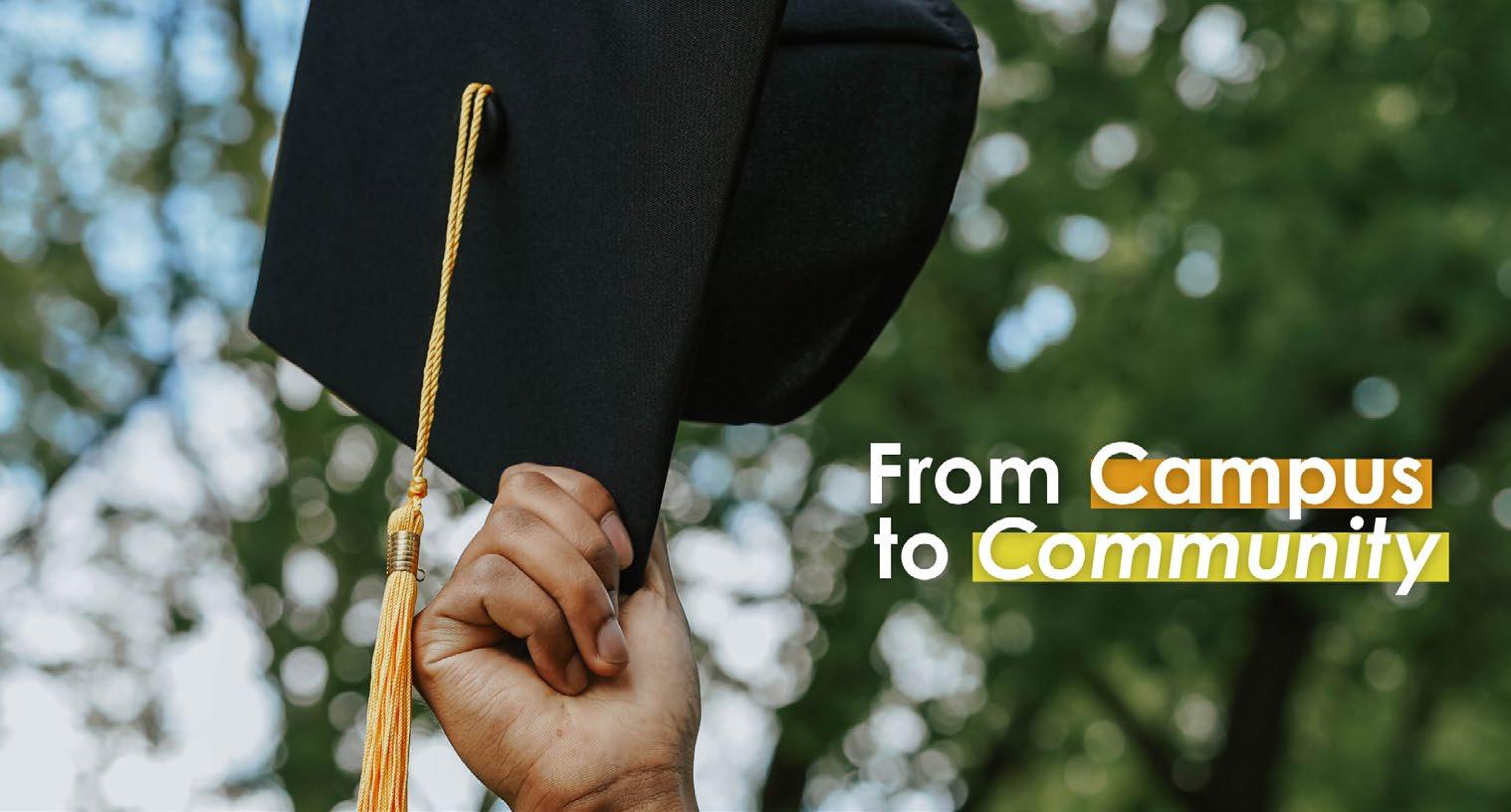
Hear From College Presidents Across America
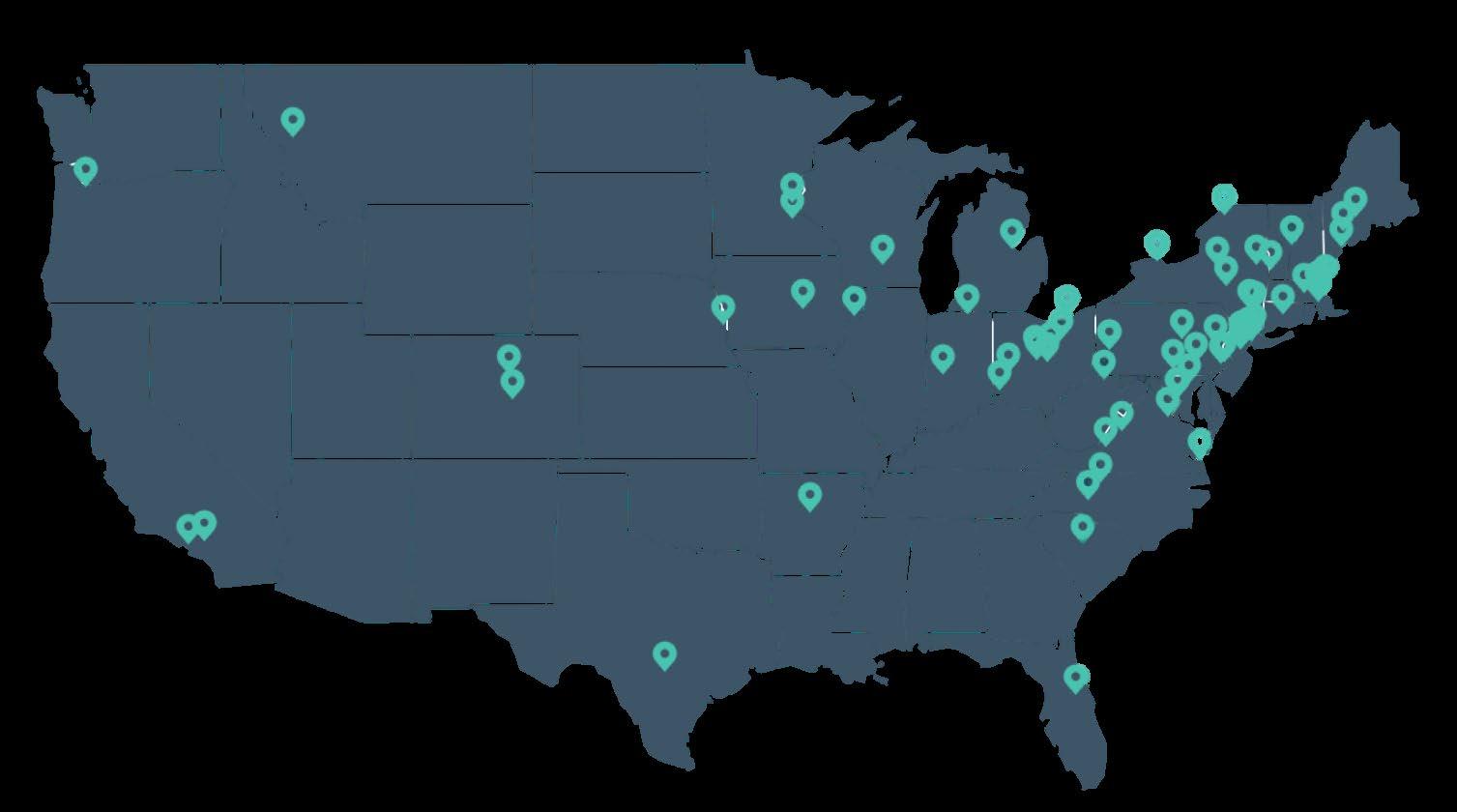
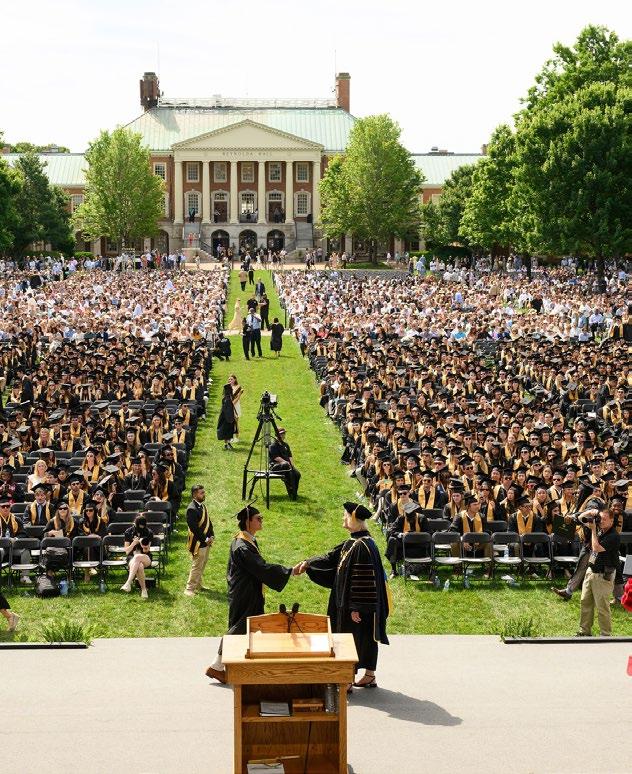
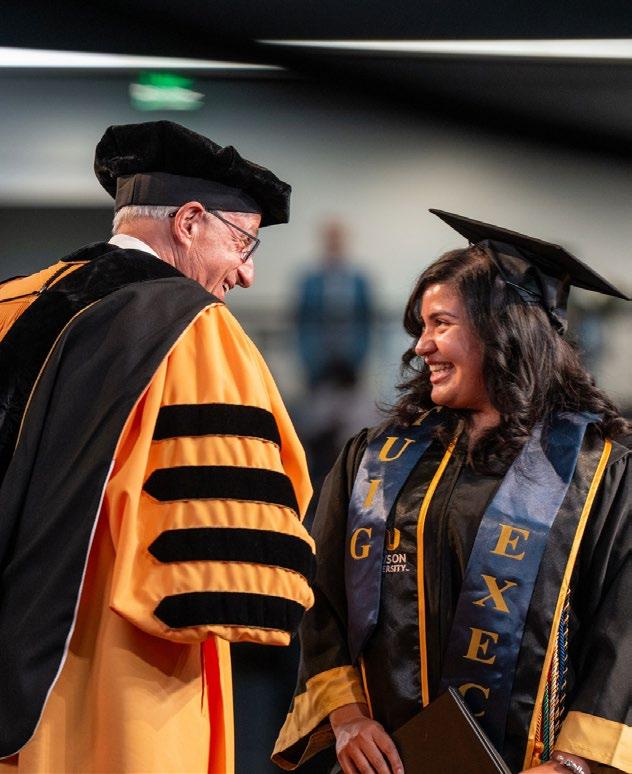
Due to your university education, you are prepared, global citizens—ready not only for careers, but to engage meaningfully across difference, to think critically, to participate with purpose in strengthening our democracy, and to contribute to the broader communities we share.
Susan Wente, Wake Forest University
You are graduating during a turbulent time, but you are exactly what our world and our nation need now. Here at TU you’ve grown to become caring and responsible citizens. You’ve learned to think critically. You’ve learned to listen and you’ve learned to find compromise. And you’ve learned to work together to make our world, our nation, our community a better place.
Mark Ginsberg, Towson University
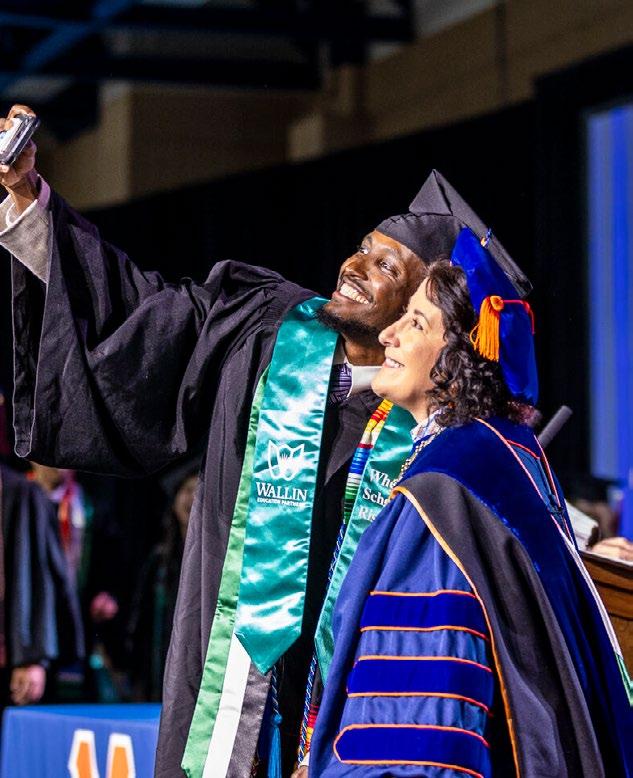
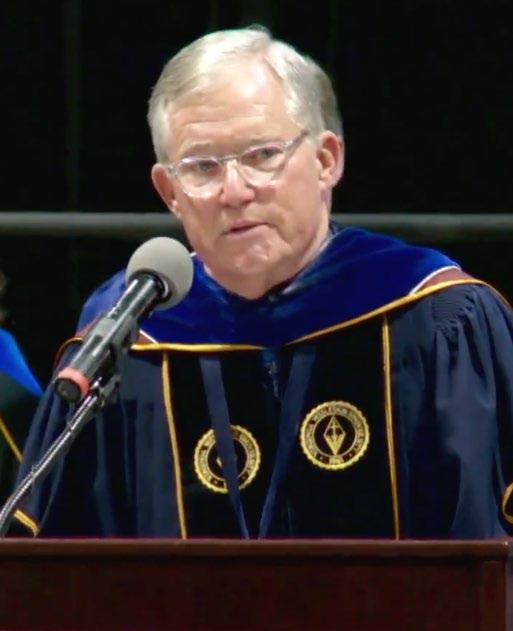
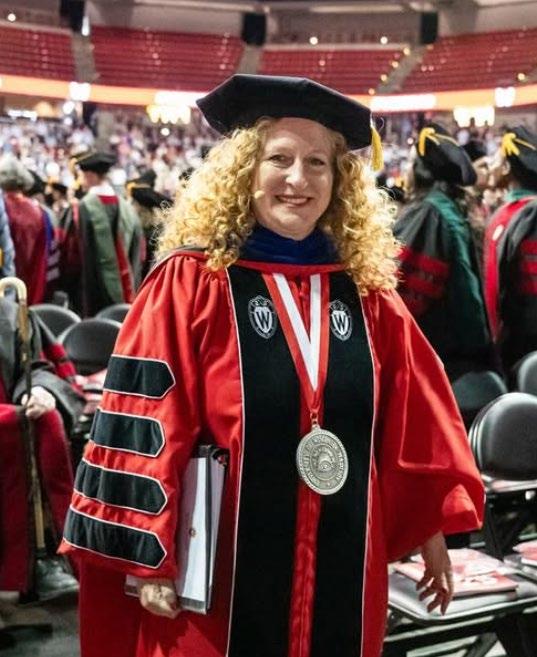
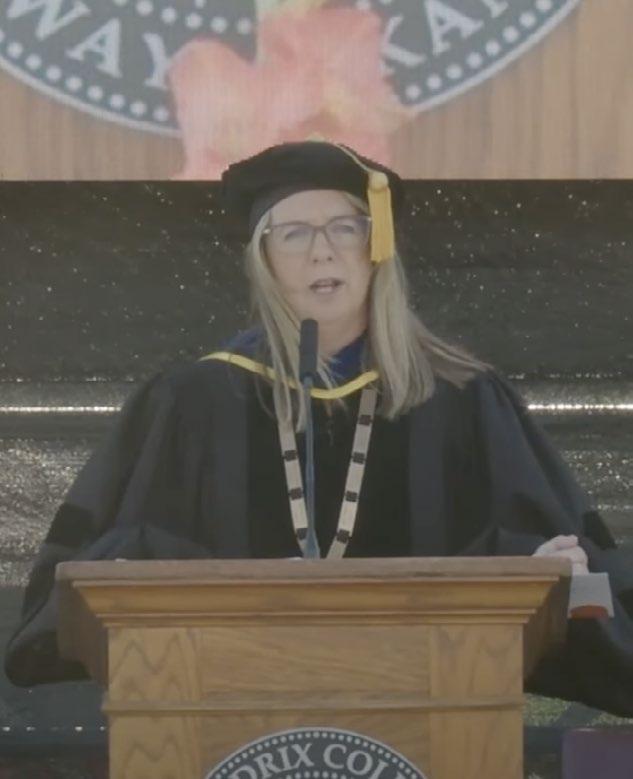
We need you to lead us away from hate and division and toward love and understanding. We need you to build bridges and connections.
Suzanne Rivera, Macalester
College
You have seen a world in flux, politically, environmentally, economically, and socially. And yet, you’ve held firm to your values, you’ve adapted with grace, persevered with determination, and grown into the kind of leaders the world urgently needs: thoughtful, ethical, and engaged. That's the role of higher education, and it is essential to a healthy democracy.
Scott Miller, Virginia Wesleyan University
Part of what I hope you’ve learned here is that you can work together to do something meaningful in the world, even when you disagree.
Jennifer Mnookin, University of Wisconsin-Madison
You have discovered that community is not something that happens by accident. It is built, one conversation at a time. As a result, you have learned to live together with people from different places, backgrounds, traditions, and faiths.
Karen Petersen, Hendrix
College
Real People. Real Impact. Real Possibility.
Our vision remains clear: every student in America graduates not just with knowledge, but with the capacity, and the responsibility, to be an engaged citizen.
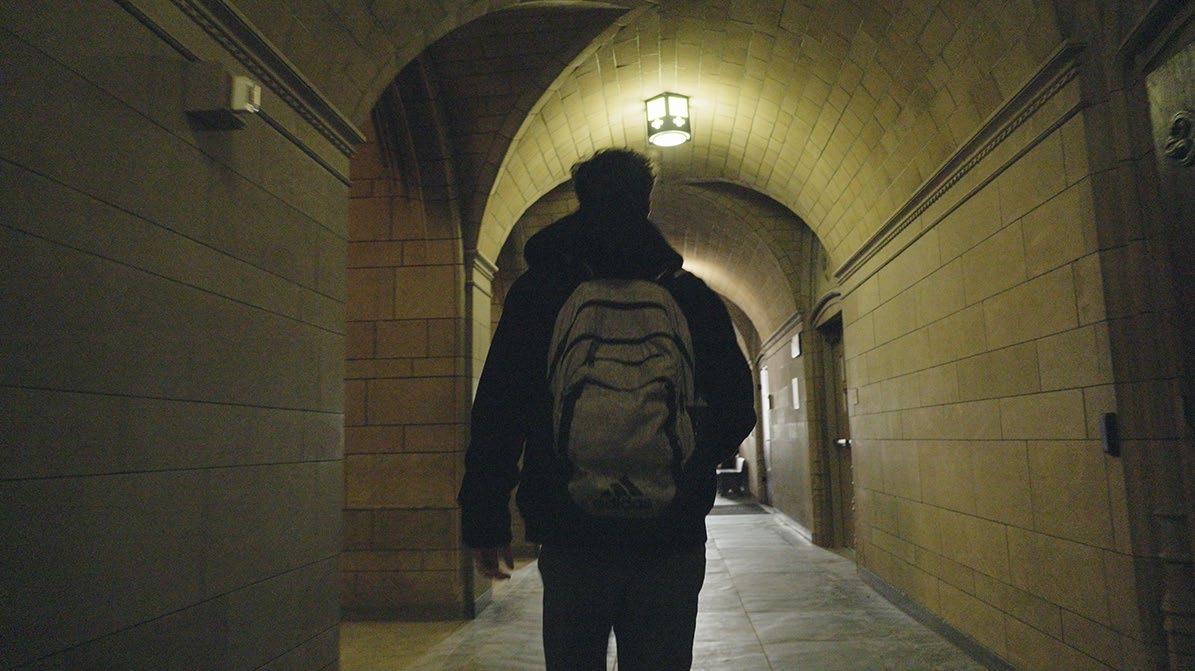
We’re proud of how far we’ve come—but we’re just getting started. In the year ahead, we will:
Expand our campuswide strategy to more institutions
Deepen support for faculty with new resources and training
Elevate student voices and scale student-led initiatives
Preparing students to confront the threat of mis- and disinformation, preparing students to think critically and act responsibly in a divisive information ecosystem
Higher education faces real challenges—but it’s also stepping up.
Because in this moment, the role of higher education in sustaining our civic life is not optional. It’s essential.

This coalition is proof: When students speak, faculty teach, and presidents lead—together—we can restore higher education’s role as the foundation of a healthy democracy.
College Presidents for Civic
Preparedness was made possible in 2025 through generous support from the following donors:
Anonymous
The Anthony and Susan Consigli Foundation
Arthur Vining Davis Foundations
ECMC Foundation
Einhorn Collaborative
F. M. Kirby Foundation
Austin E. Knowlton Foundation
Lubetzky Family Foundation
Lutz Family Giving Fund
One8 Foundation
Templeton Religion Trust
The Tepper Foundation
Membership, 2024-25
American University | Jon Alger
Amherst College | Michael Elliott
Participated in the Faculty Institute
Participated in Campuswide Immersion
Participated in From Campus to Community
Augsburg University | Paul Pribbenow
Augustana College | Andrea Talentino
Bates College | Garry Jenkins
Benedict College | Roslyn Artis
Bennington College | Laura Walker
Boise State University | Marlene Tromp
Bryn Mawr College | Wendy Cadge
Butler University | James Danko
Cal. State University-San Marcos | Ellen Neufeldt
Carnegie Mellon University | Farnam Jahanian
Case Western Reserve University | Eric Kaler
Centre College | Milton Moreland
Claflin University | Dwaun Warmack
Claremont McKenna College | Hiram Chodosh
Clark University | David Fithian
Cleveland State University | Laura Bloomberg
Colby College | David Greene
Colgate University | Brian Casey
College Unbound | Adam Bush
Colorado College | Manya Whitaker
CUNY, Stella & Charles Guttman Community College |
Larry Johnson
Dartmouth | Sian Beilock
Davidson College | Douglas Hicks
Delta College | Michael Gavin
Denison University | Adam Weinberg
DePauw University | Lori White
Drew University | Hilary Link
Duke University | Vincent Price
El Paso Community College | William Serrata
Elon University | Connie Book
Fairfield University | Mark Nemec
Fairmont State University | Michael Davis
Fordham University | Tania Tetlow
Franklin & Marshall College | Barbara Altmann
George Washington University | Ellen Granberg
Gettysburg College | Robert Iuliano
Goshen College | Rebecca Stoltzfus
Grinnell College | Anne Harris
Hamilton College | Steven Tepper
Hamline University | Kathleen Murray
Hartwick College | James Mullen
Harvey Mudd College | Harriet Nembhard
Haverford College | Wendy Raymond
Hendrix College | Karen Petersen
Hofstra University | Susan Poser
Howard University | Ben Vinson
Hudson Co. Community College | Chris Reber
Indiana University | Pamela Whitten
James Madison University | Charlie King
Kenyon College | Julie Kornfeld
La Roche University | Christina Clark
La Salle University | Daniel Allen
Lewis & Clark College | Robin Holmes-Sullivan
Longwood University | Taylor Reveley
Luther College | Jenifer Ward
Macalester College | Suzanne Rivera
Maine Community College System | David Daigler
Manhattanville University | Frank Sanchez
Mass. College of Art and Design | Mary Grant
Mass. College of Liberal Arts | James Birge
Mercy University | Susan Parish
Montclair State University | Jonathan Koppell
Mount St. Joseph University | James Williams
Muhlenberg College | Kathleen Harring
Muskingum University | Sue Hasseler
Nazareth University | Elizabeth Paul
Oakland University | Ora Pescovitz
Ohio Northern University | Melissa Baumann
Ohio Wesleyan U. | Matthew vandenBerg
Otterbein University | John Comerford
Pace University | Marvin Krislov
Penn. Institute of Technology | Matt Meyers
Quinnipiac University | Judy Olian
Rhodes College | Jennifer Collins
Roanoke College | Frank Shushok
Rollins College | Grant Cornwell
Rutgers University | Jonathan Holloway
Salem College | Summer McGee
Salem State University | John Keenan
Sarah Lawrence College | Cristle Collins Judd
Sewanee: The Univ. of the South | Robert Pearigen
Skidmore College | Marc Conner
St. Lawrence University | Kathryn Morris
St. Olaf College | Susan Singer
Stetson University | Christopher Roellke
SUNY Brockport | Heidi Macpherson
SUNY New Paltz | Darrell Wheeler
SUNY Oswego | Peter Nwosu
Susquehanna University | Jonathan Green
The College of Wooster | Anne McCall
The Johns Hopkins University | Ron Daniels
Towson University | Mark Ginsberg
Trinity University | Vanessa Beasley
Tufts University | Sunil Kumar
University of Dayton | Eric Spina
University of Denver | Jeremy Haefner
University of Findlay | Katherine Fell
U. of Illinois Urbana-Champaign | Robert Jones
University of Maine | Joan Ferrini-Mundy
University of Mary Washington | Troy Paino
University of Minnesota | Rebecca Cunningham
University of Montana | Seth Bodnar
University of Nebraska at Omaha | Joanne Li
University of Pittsburgh | Joan Gabel
University of Richmond | Kevin Hallock
U. of Southern Maine | Jacqueline Edmondson
U. of Tennessee-Knoxville | Donde Plowman
University of Tulsa | Brad Carson
University of Vermont | Patricia Prelock
University of Virginia | James Ryan
U. of Wisconsin-Madison | Jennifer Mnookin
Vassar College | Elizabeth Bradley
Virginia Community College System | David Doré
Virginia Wesleyan University | Scott Miller
Wake Forest University | Susan Wente
Washington and Lee University | William Dudley
Washington U. in St. Louis | Andrew Martin
Wellesley College | Paula Johnson
Wesleyan University | Michael Roth
West Los Angeles College | James Limbaugh
Wheaton College (MA) | Michaele Whelan
Whitman College | Sarah Bolton
Xavier University | Colleen Hanycz
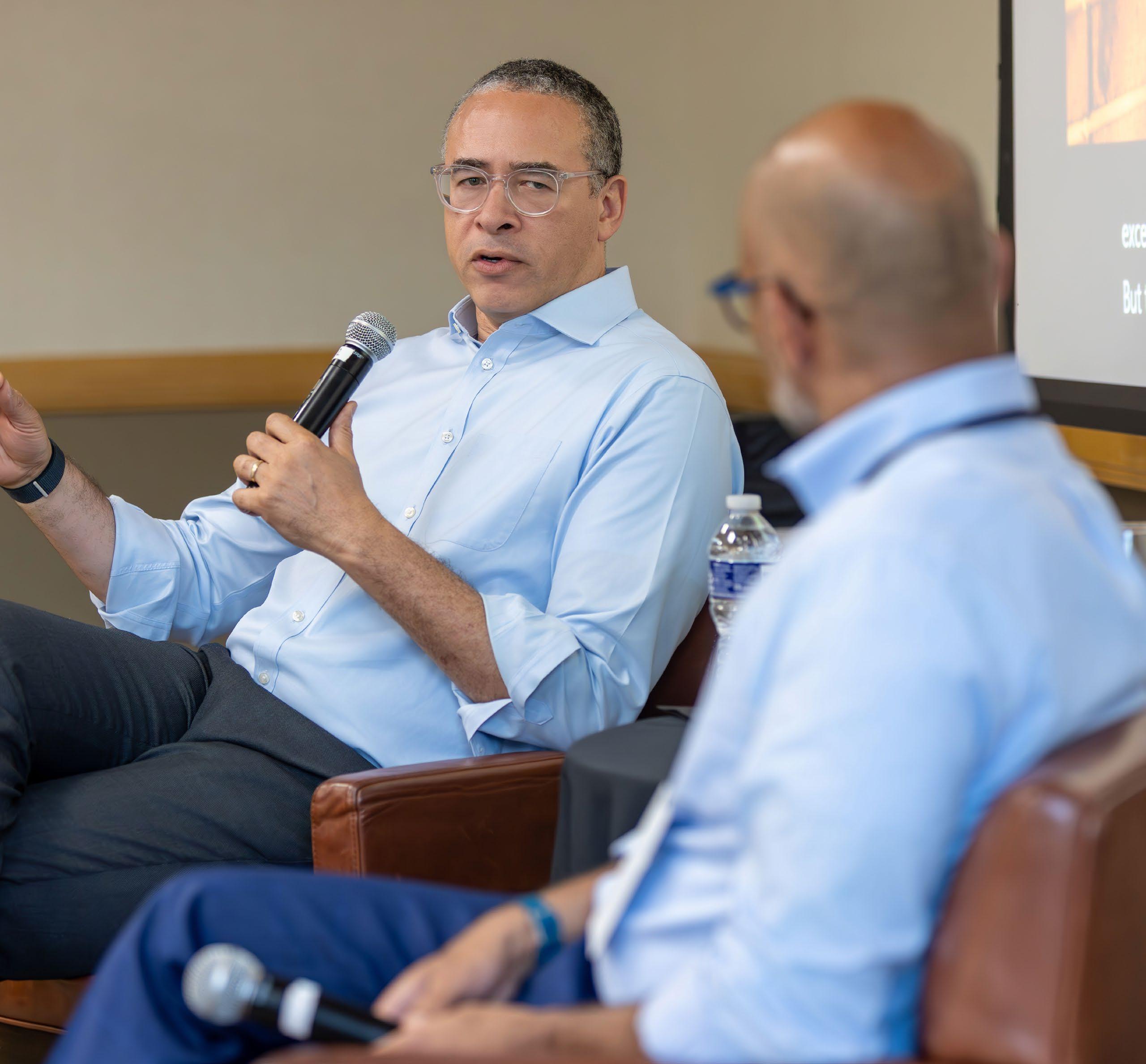
PHOTO CREDITS
Cover
Denison University
Page 9
Denison University, Claremont McKenna College, Zach Stovall for Rollins College, Amherst College, Ohio Wesleyan University
Page 13
James Madison University
Page 14
Davidson College
Page 15
Wake Forest University, Towson University
Page 16
Macalester College, Virginia Wesleyan University, University of Wisconsin-Madison, Hendrix College
College Presidents for Civic Preparedness is convened by
The Institute for Citizens & Scholars 104 Carnegie Center Dr. Suite 301
Princeton, New Jersey 08540
collegepresidents.org

About the Institute for Citizens & Scholars
The Institute for Citizens & Scholars (citizensandscholars.org) is a more-than-75-year-old organization that has played a significant role in shaping American higher education. Now, with an expanded mission, Citizens & Scholars prepares leaders and engages networks of people and organizations to meet urgent education challenges. The overarching goal is to shape an informed, productively engaged, and committed citizenry.
